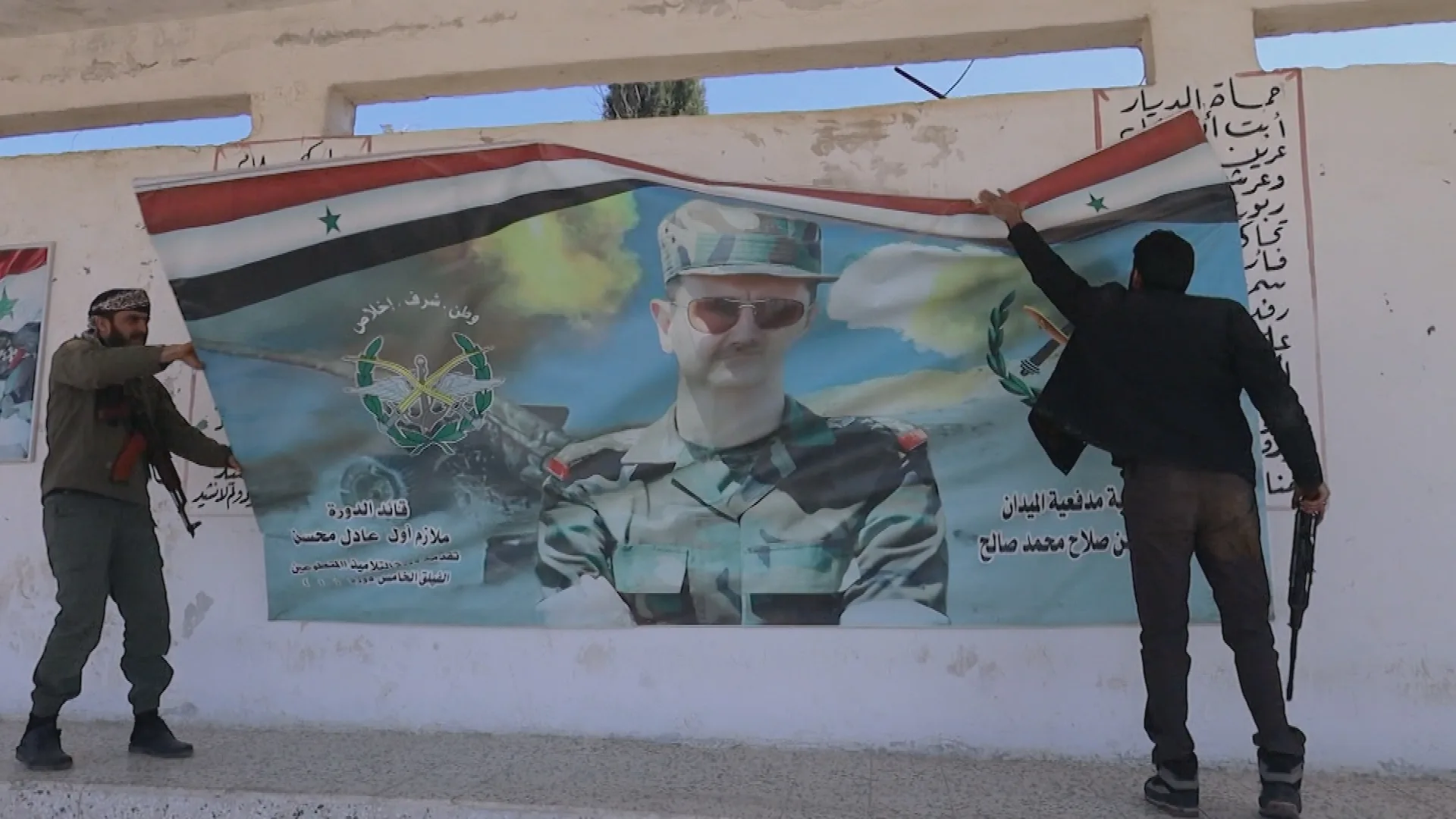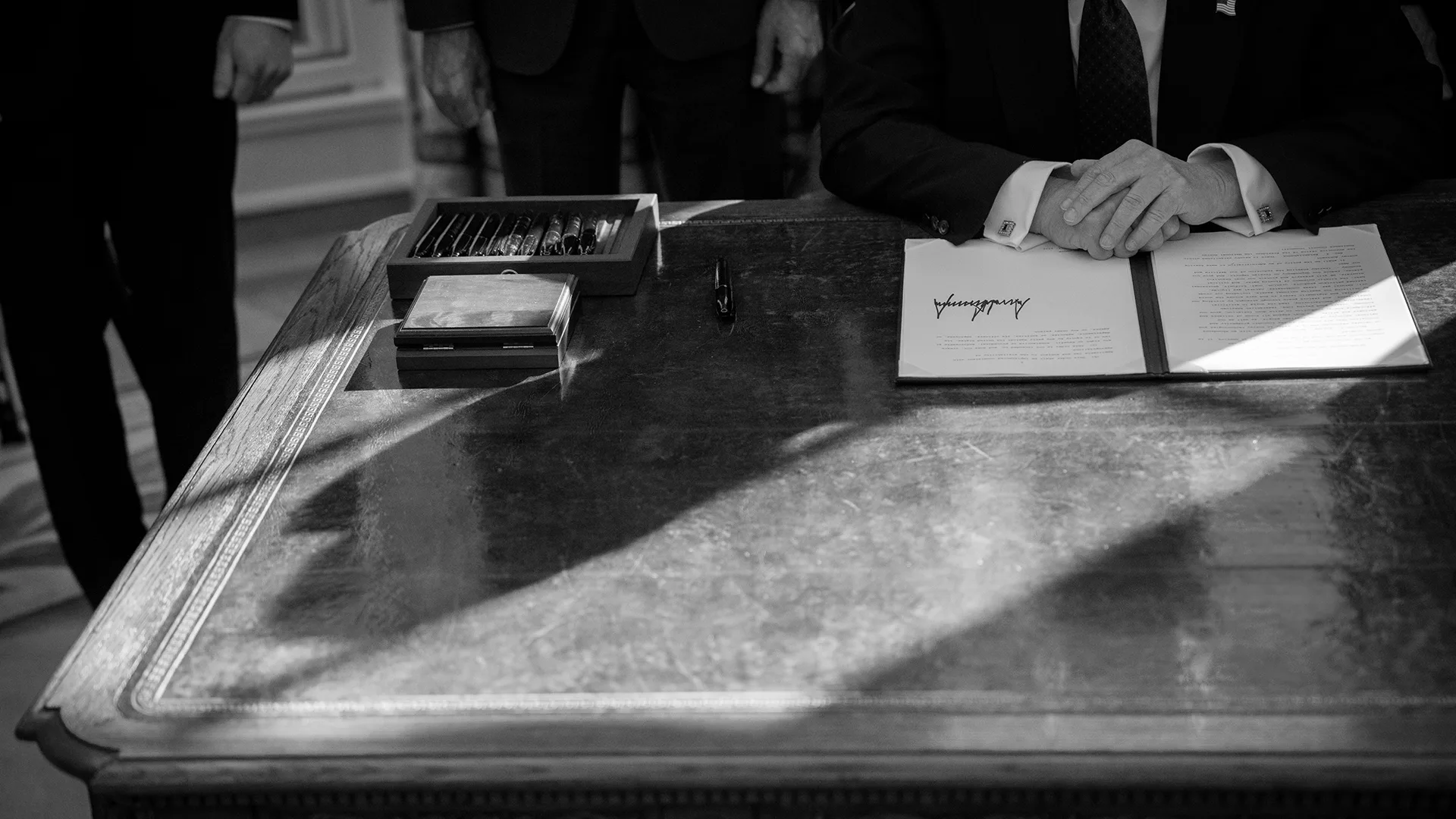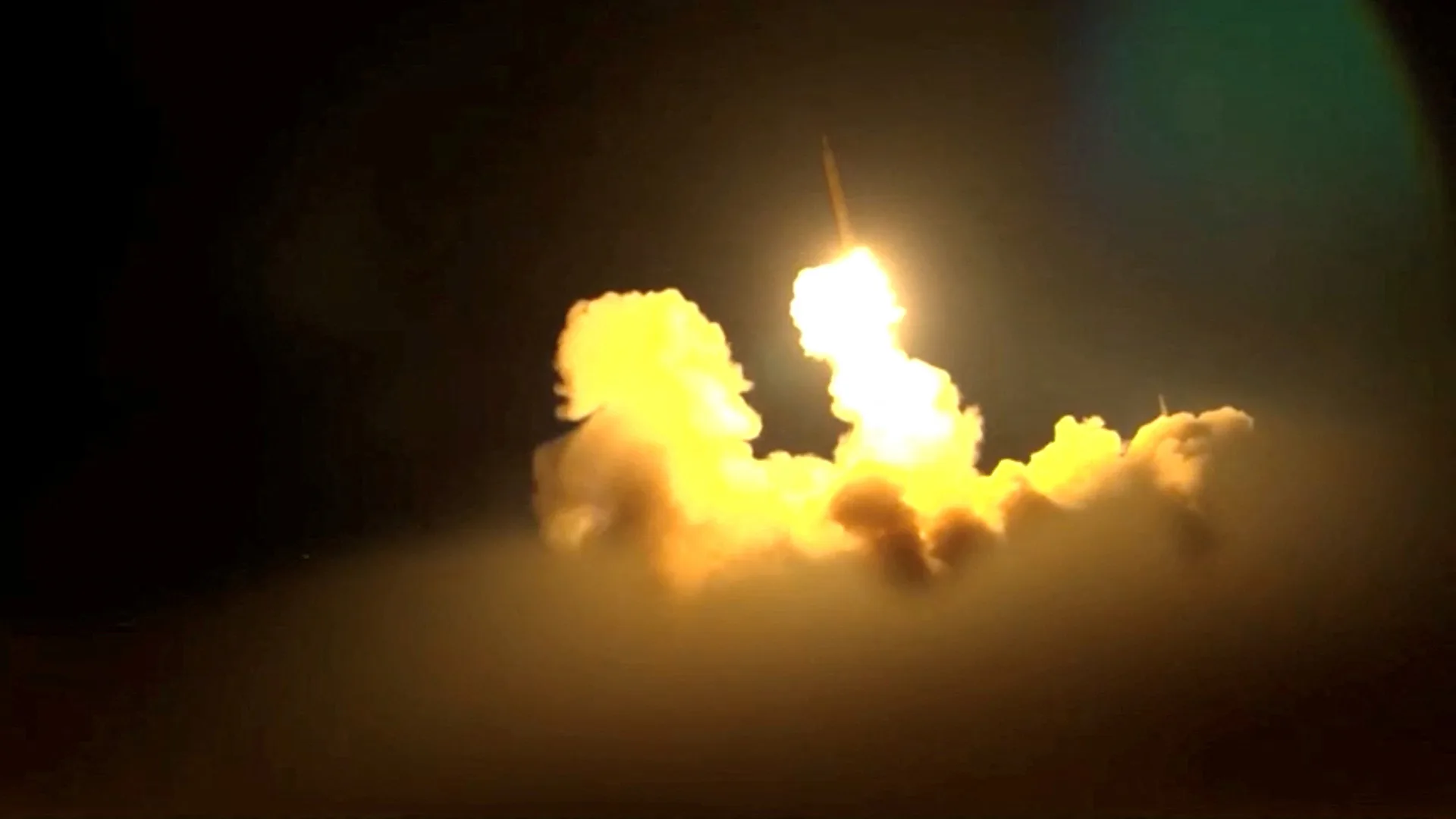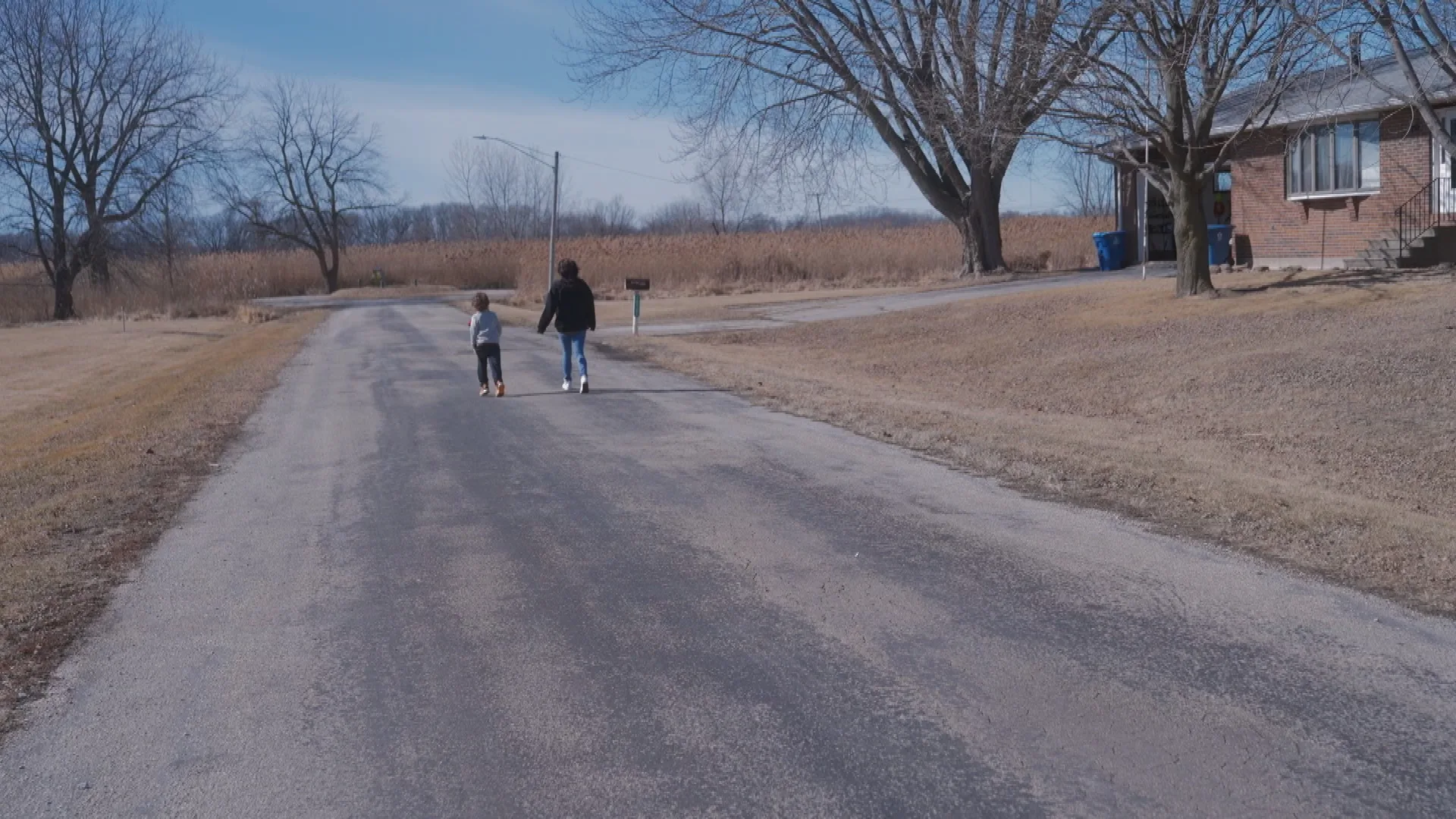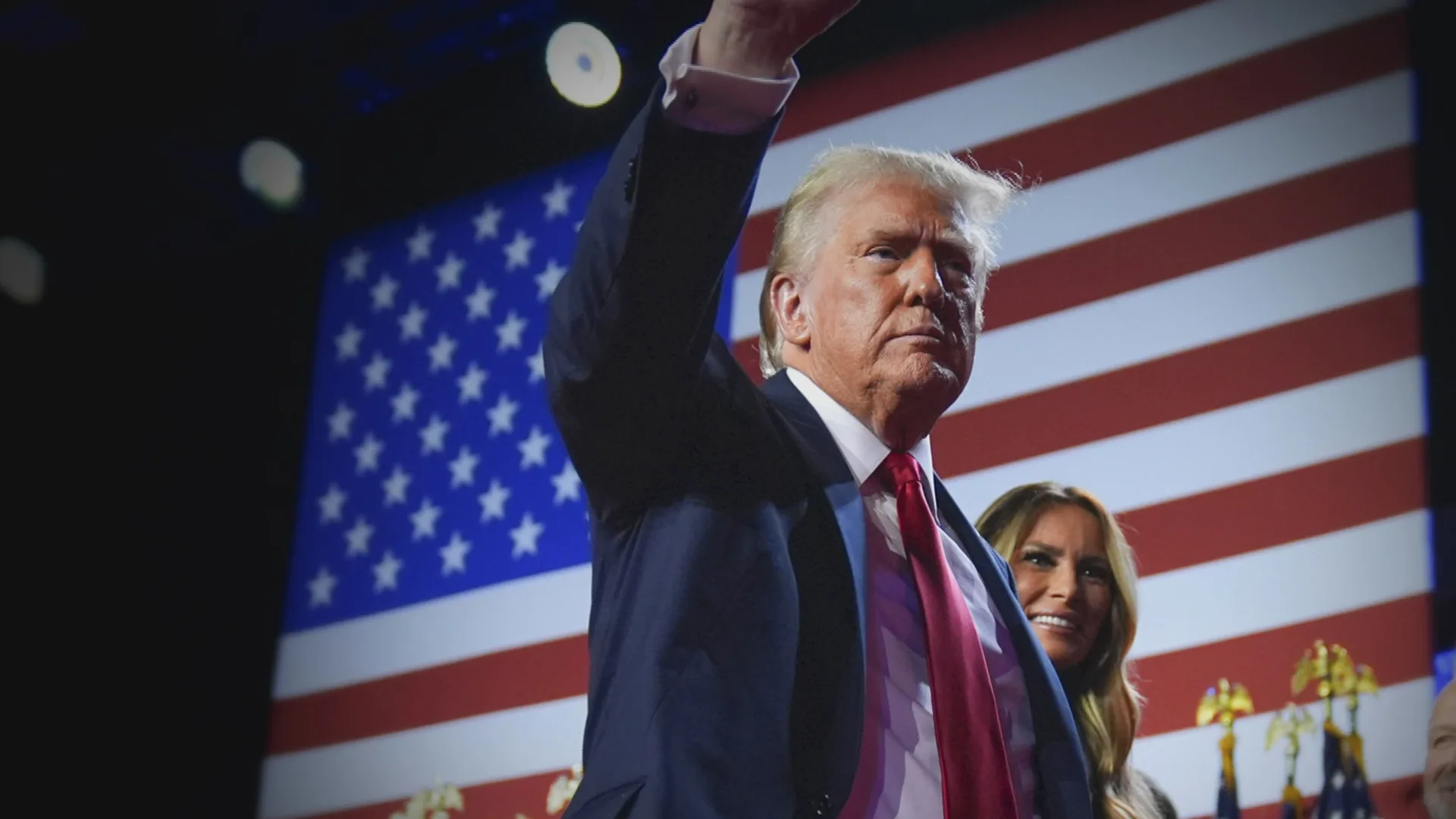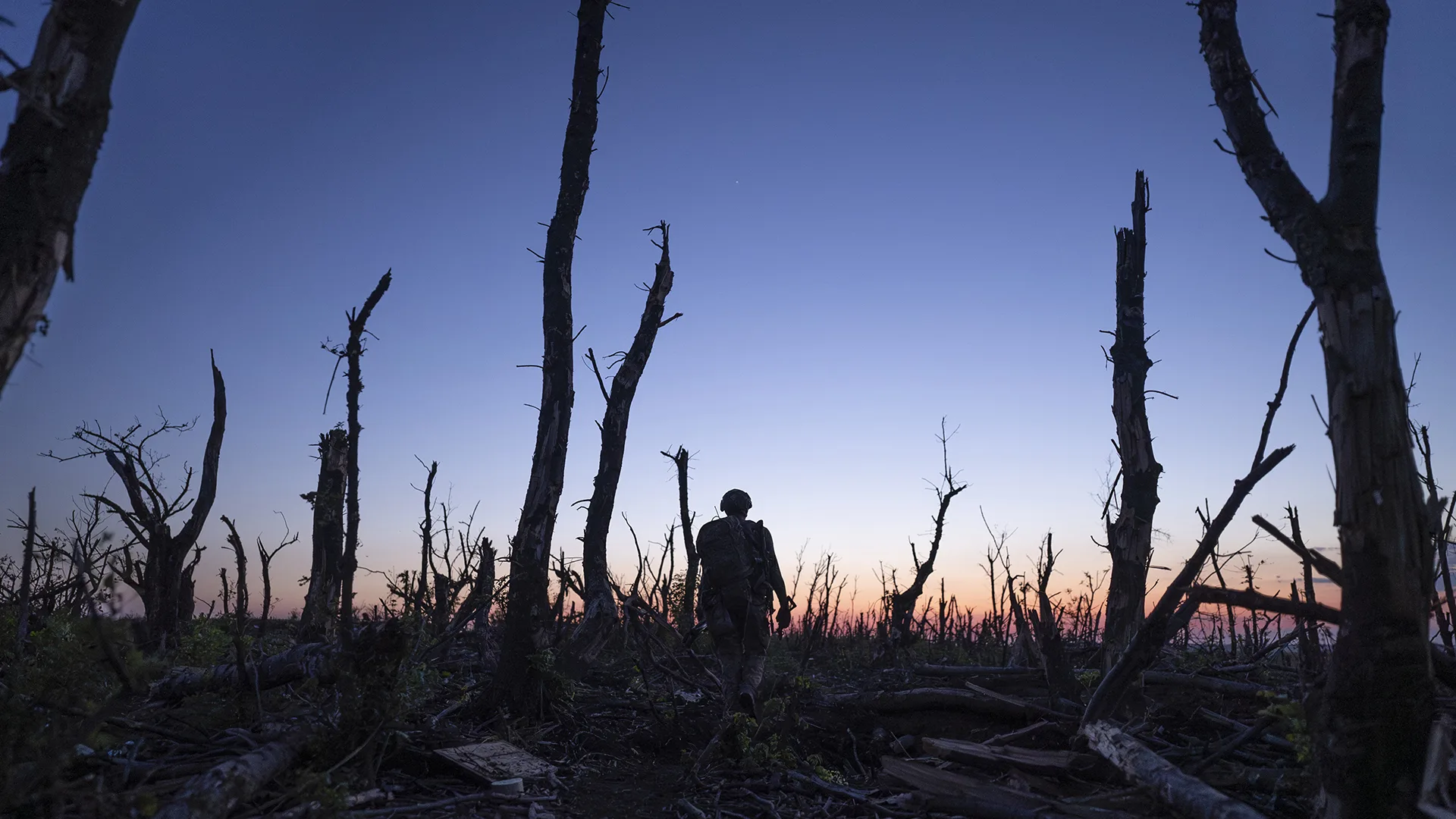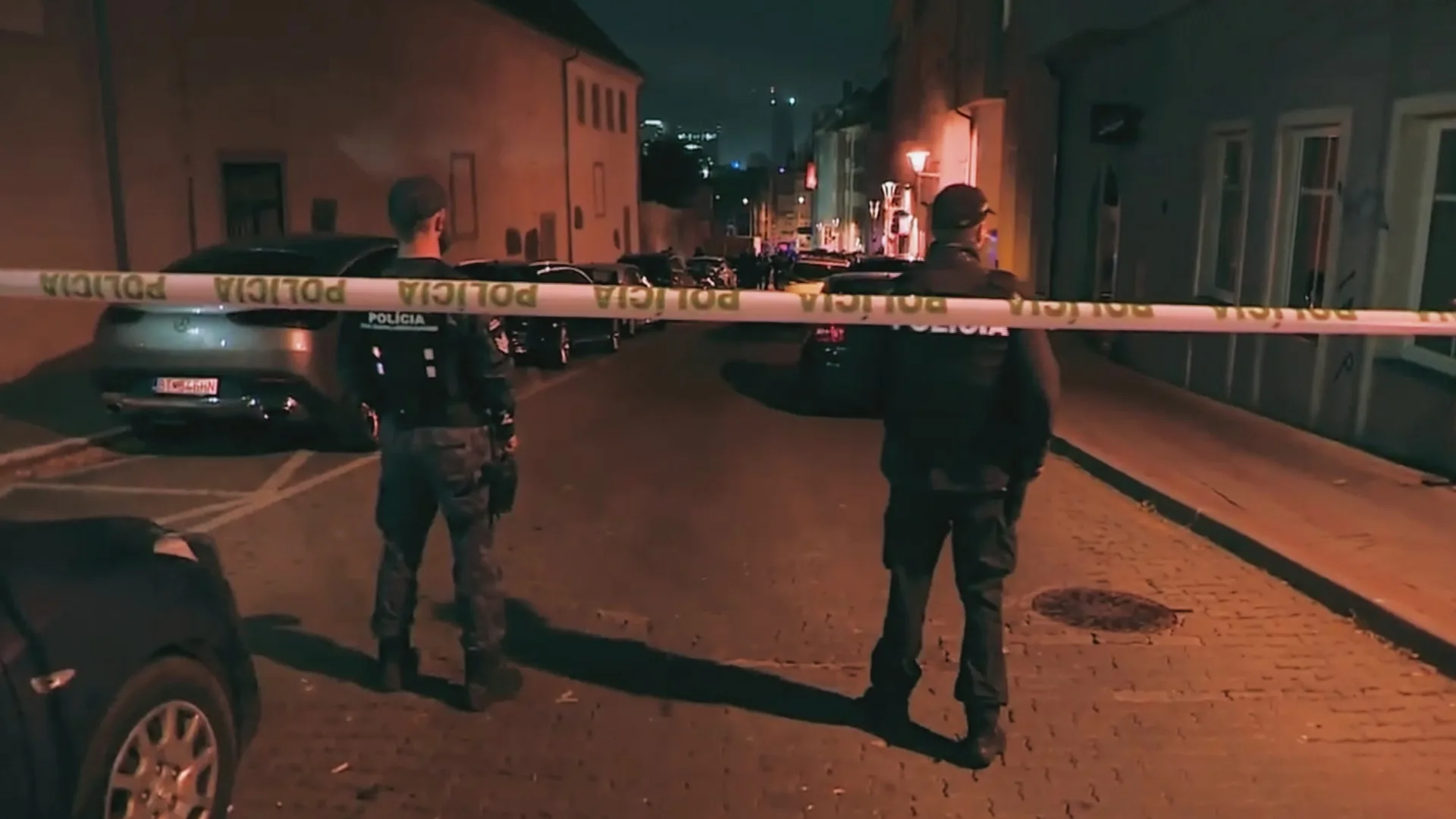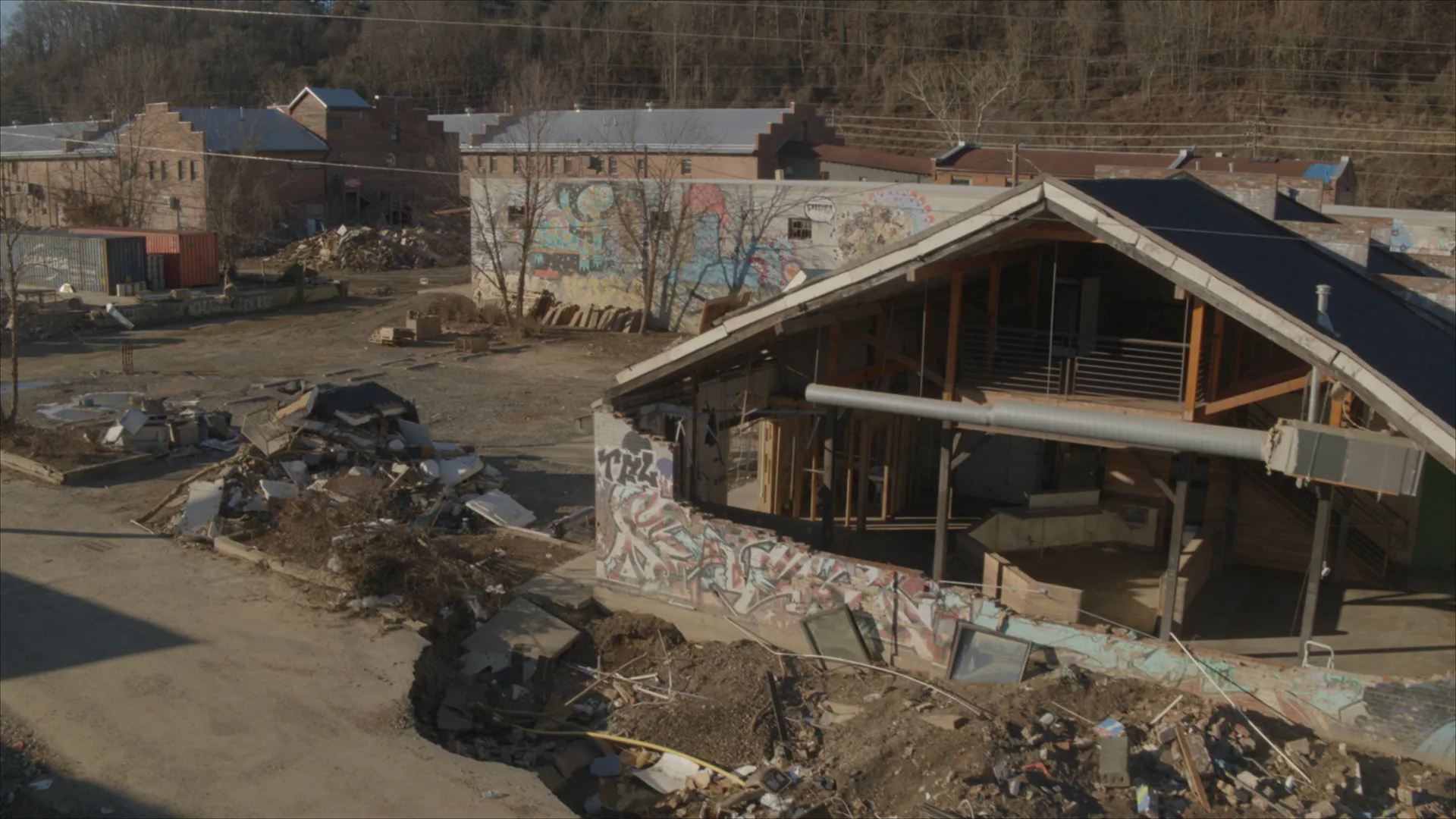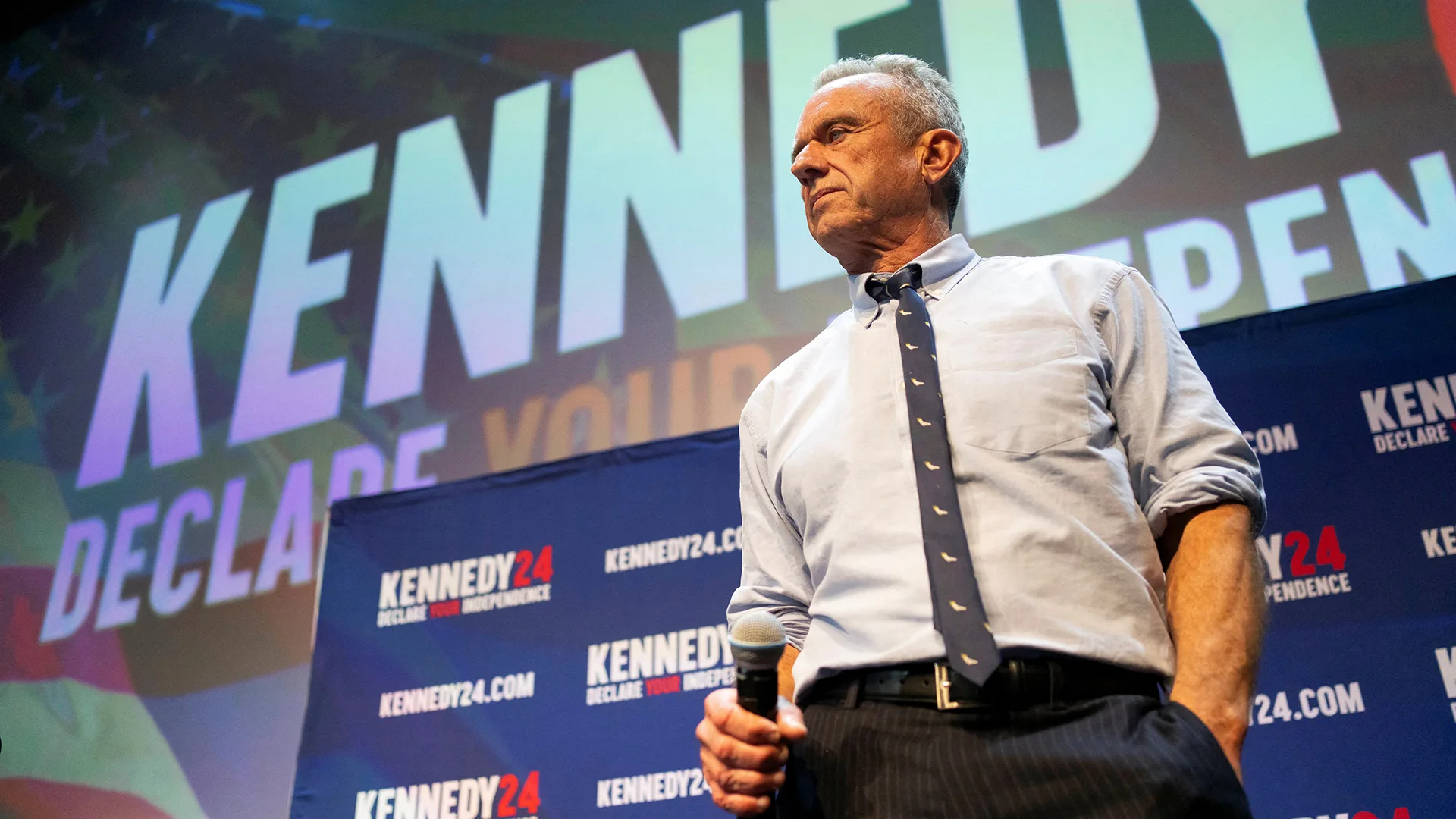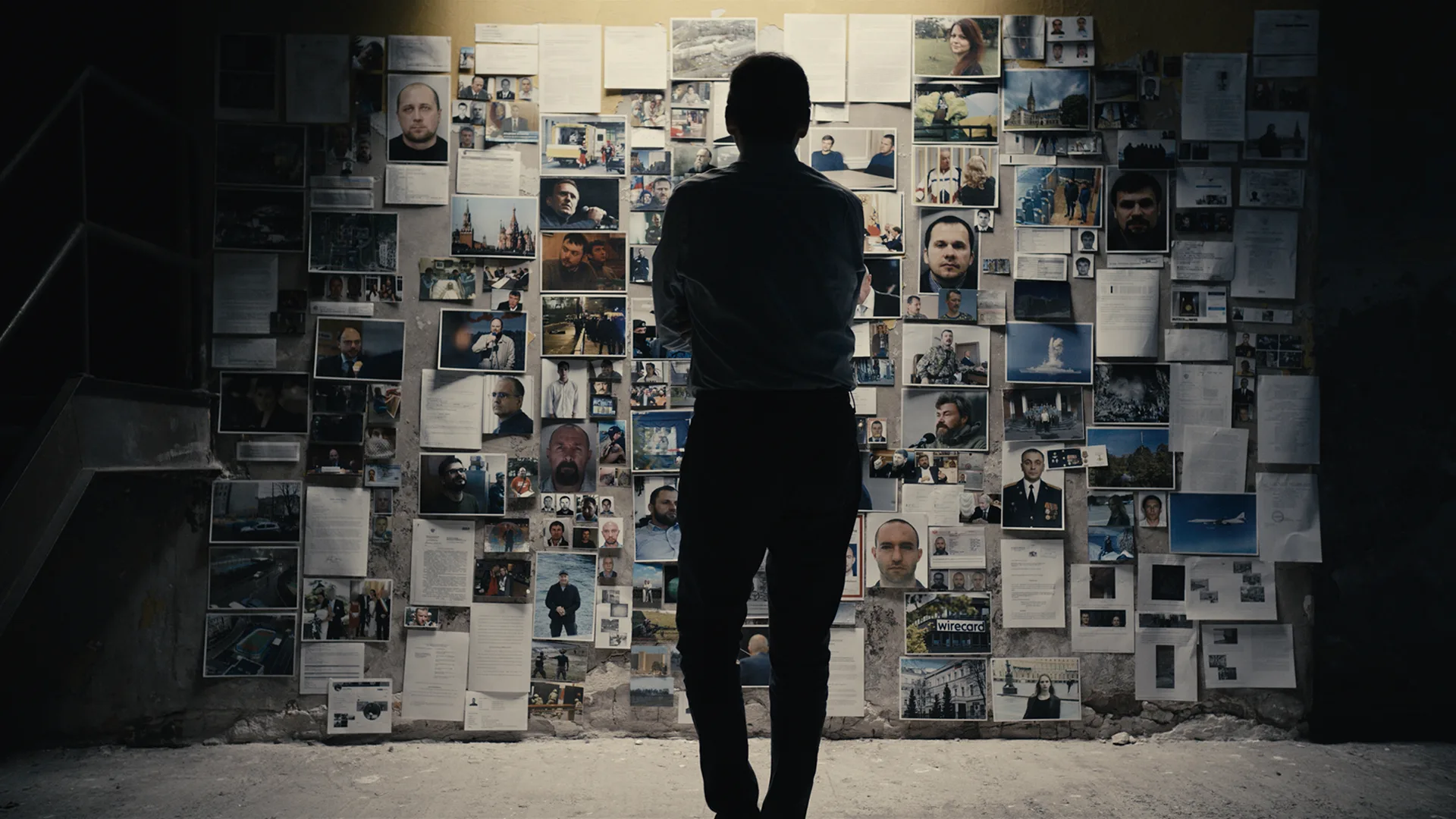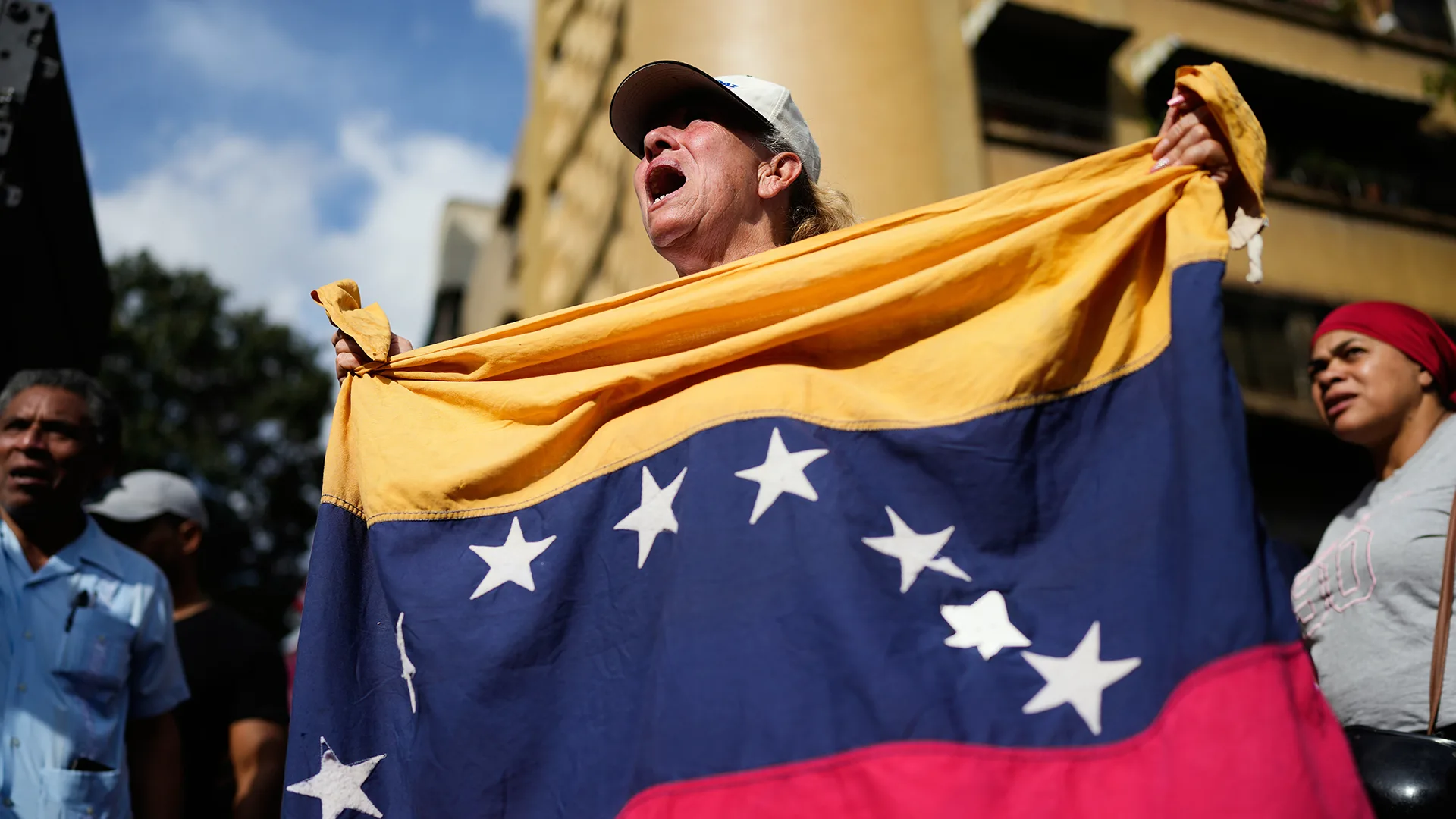Putin’s Crisis
July 11, 2023
52m
How Russian President Vladimir Putin reached this moment of crisis
Putin’s Crisis
July 11, 2023
52m
Share
With Vladimir Putin facing down a mutiny, FRONTLINE examines how the Russian leader reached this moment of crisis. Veteran filmmaker Michael Kirk and his team examine the story of Putin’s rise, his clashes at home and abroad, and how his troubled Ukraine war led to the greatest threat yet to his grip on power.
Directed by
Produced by
Transcript
Credits
Journalistic Standards
Support provided by:
Learn More
Most Watched
The FRONTLINE Newsletter
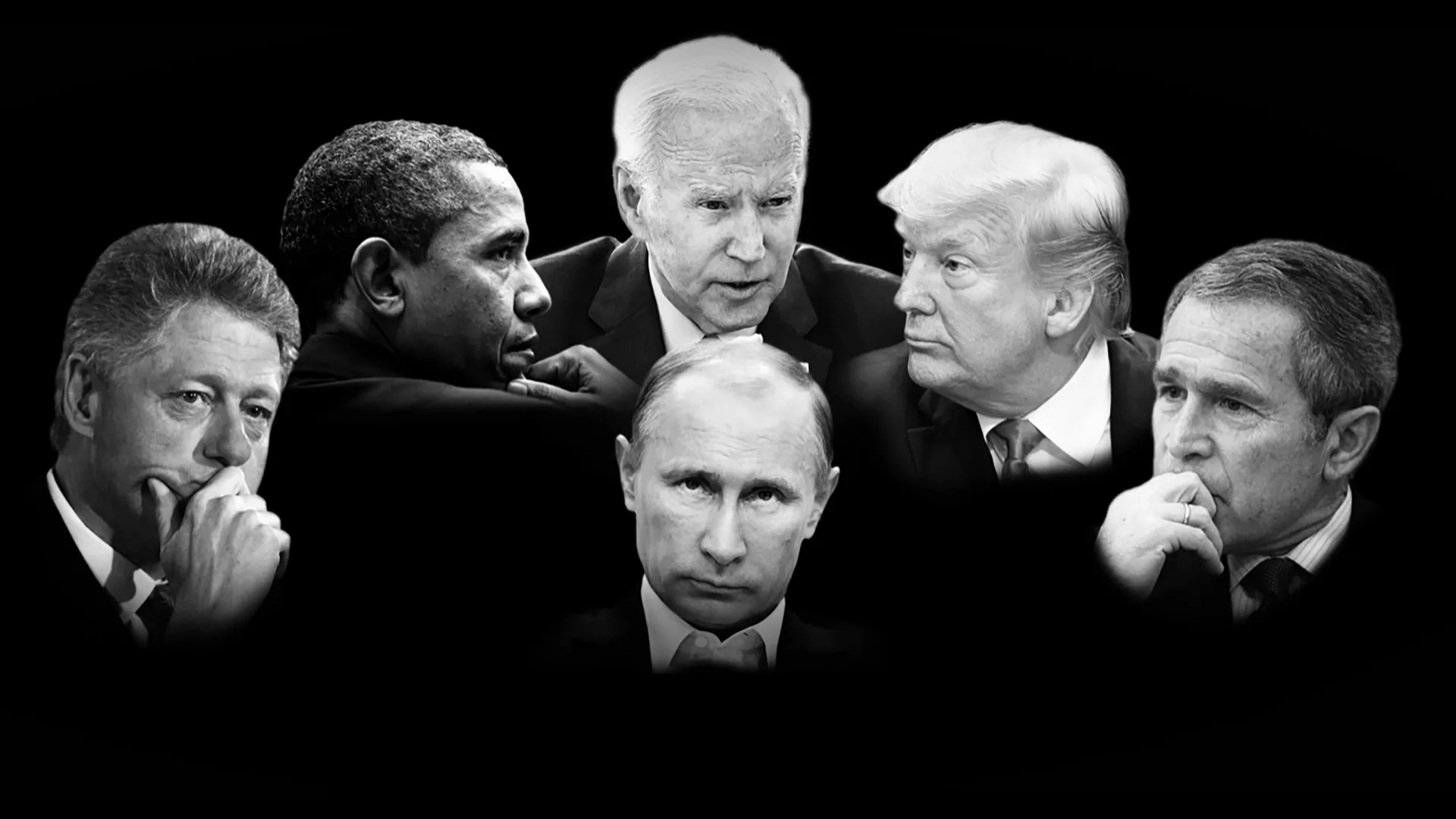
Putin and the Presidents
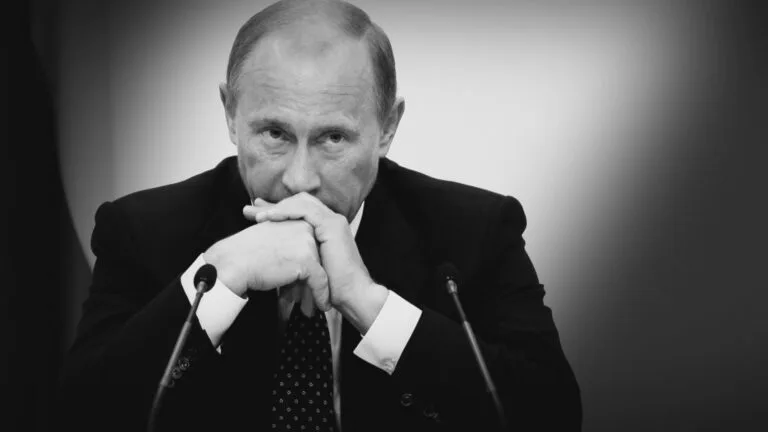
Where Are Russian Critics of Putin Featured in “Putin and the Presidents” Now?
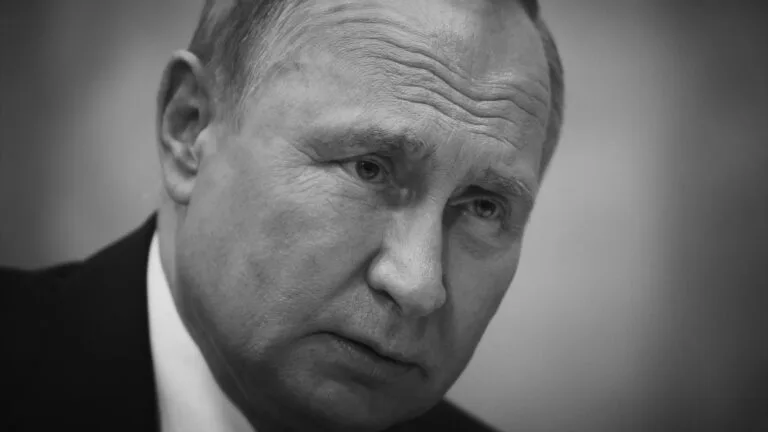
What the Wagner Group Mutiny Reveals About Putin’s Grip on Power
Related Stories
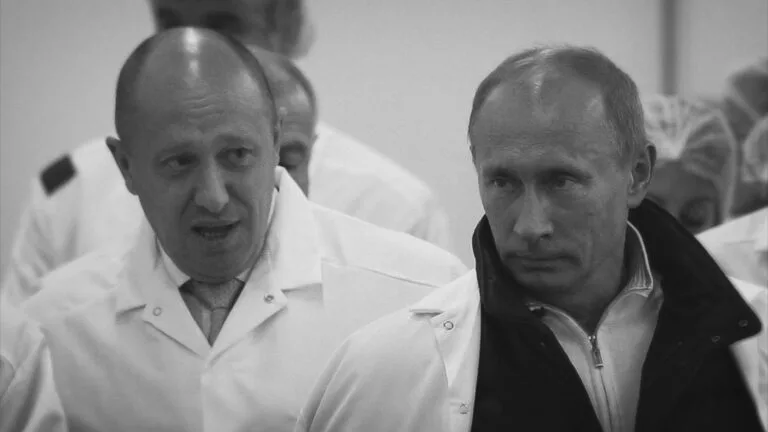
How Yevgeny Prigozhin, Now Presumed Dead, Posed a Threat to Vladimir Putin’s Authority

What the Wagner Group Mutiny Reveals About Putin’s Grip on Power

Where Are Russian Critics of Putin Featured in “Putin and the Presidents” Now?
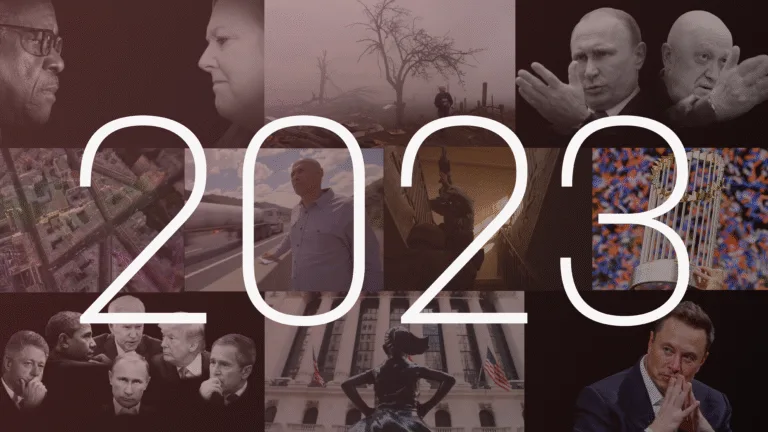
Watch 2023’s 10 Most-Streamed New FRONTLINE Documentaries
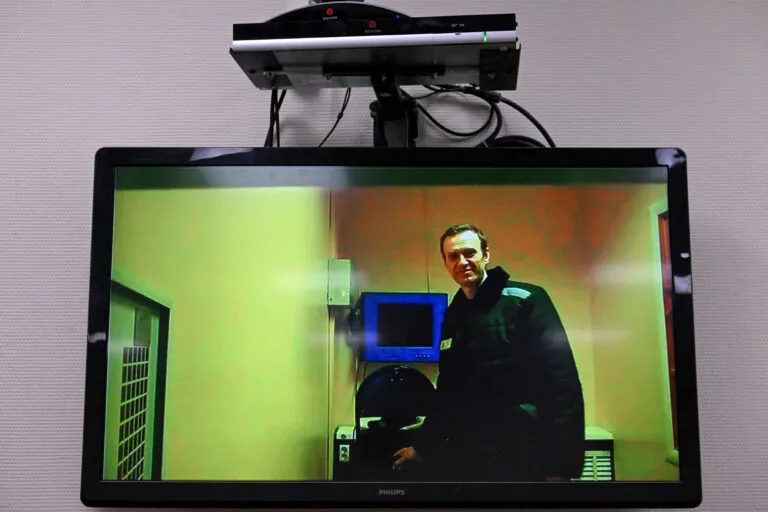
Following Reported Death of Putin Critic Alexei Navalny, A Look at Dissent in Putin’s Russia
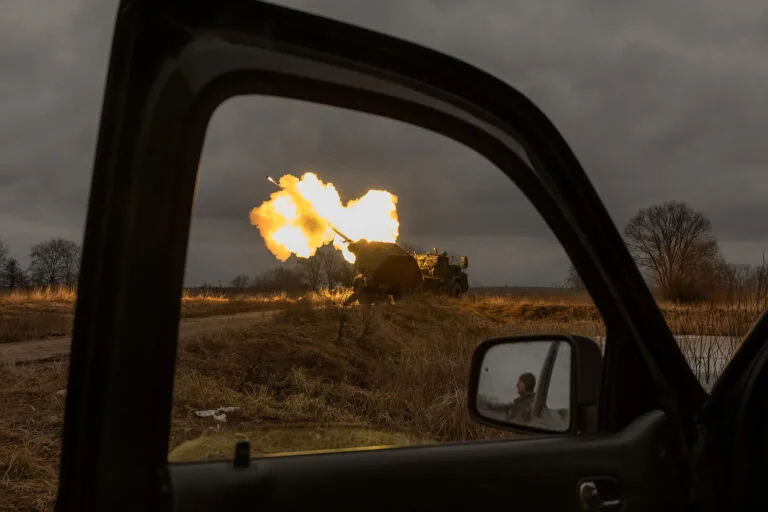
Russia’s Invasion of Ukraine, Two Years Later
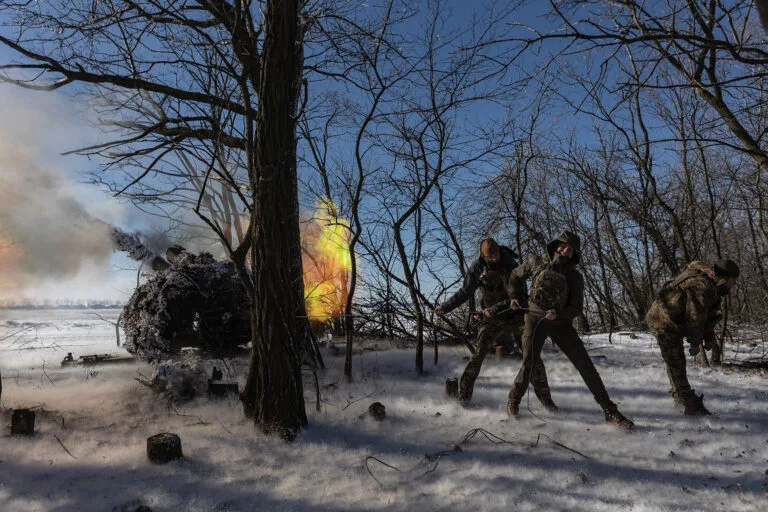
Russia’s War on Ukraine Enters Its Fourth Year

Putin and the Presidents
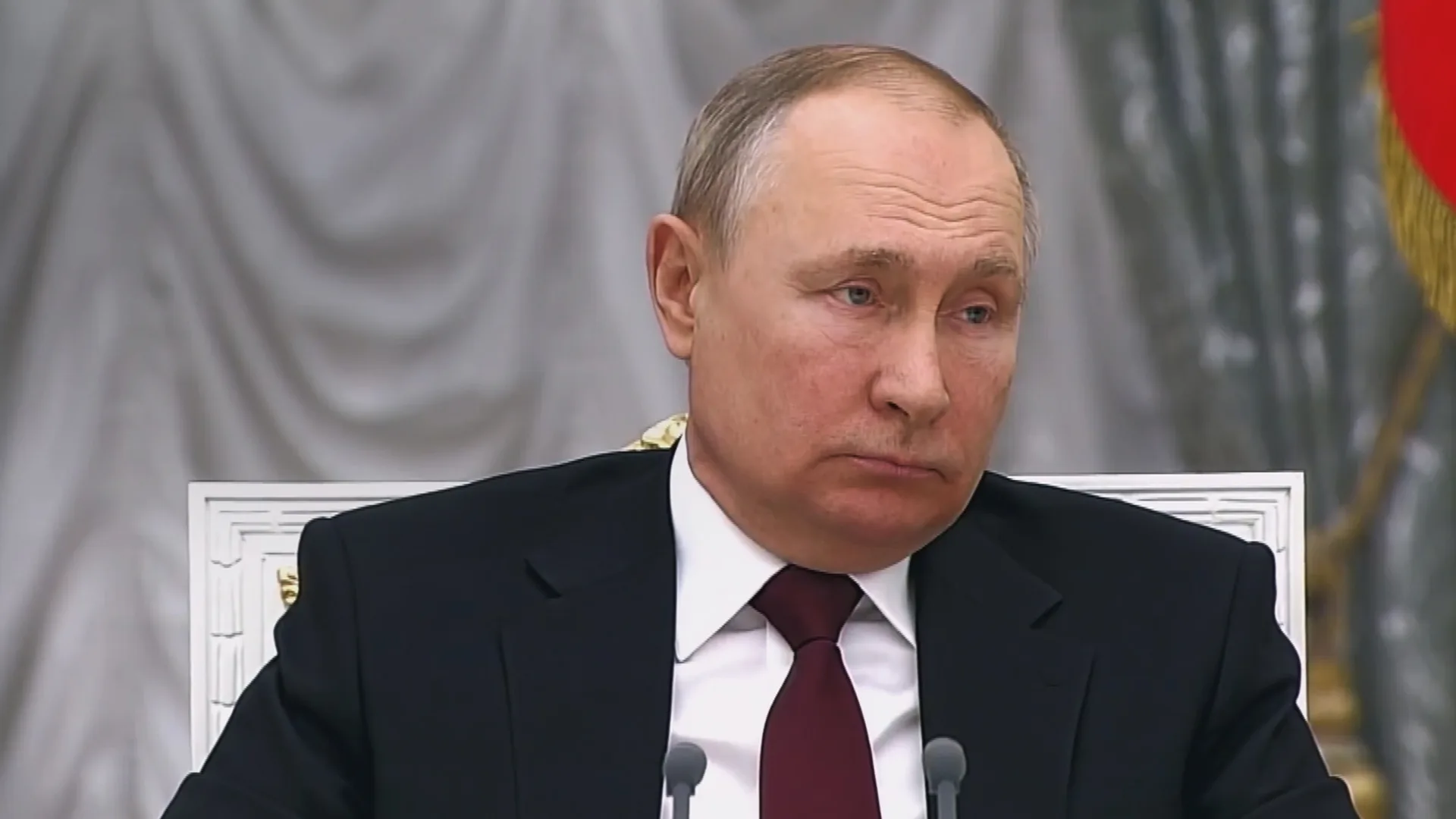
Putin’s Road to War
Related Stories

How Yevgeny Prigozhin, Now Presumed Dead, Posed a Threat to Vladimir Putin’s Authority

What the Wagner Group Mutiny Reveals About Putin’s Grip on Power

Where Are Russian Critics of Putin Featured in “Putin and the Presidents” Now?

Watch 2023’s 10 Most-Streamed New FRONTLINE Documentaries

Following Reported Death of Putin Critic Alexei Navalny, A Look at Dissent in Putin’s Russia

Russia’s Invasion of Ukraine, Two Years Later

Russia’s War on Ukraine Enters Its Fourth Year

Putin and the Presidents

Putin’s Road to War
This program contains graphic imagery which may not be suitable for all audiences. Viewer discretion is advised.
PETER BAKER, Co-author, Kremlin Rising:
It’s Friday night in the West, and suddenly there are these reports of an armed uprising.
MALE NEWSREADER:
Now to that major development in the war in Ukraine. Trouble brewing within the Russian ranks.
FEMALE REPORTER:
An unprecedented armed rebellion inside Russia.
PETER BAKER:
It is shocking to see tanks in the streets in Russia. We haven’t seen anything like that since 1991 and 1993.
MALE NEWSREADER:
Very dramatic indeed. Historic development.
MALE NEWSREADER:
The Wagner chief has said his 25,000-strong force is ready to die.
PETER BAKER:
It’s a real shock to the system to see these images and to understand what’s behind them.
NARRATOR:
Leading the mutiny, Yevgeny Prigozhin, a mercenary renowned for his brutality, and until that day Vladimir Putin’s close ally.
MALE REPORTER:
The best way to understand what’s happening now in Russia is a mafia power struggle.
PETER BAKER:
As more reports come in, more video comes in, you’re seeing that there are actually troops moving into Rostov and that they’re actually taking the headquarters.
YEVGENY PRIGOZHIN:
[Speaking Russian] We are at the headquarters. It’s 7:30 a.m. We have taken Rostov’s military objects under our control.
EVELYN FARKAS, Defense Dept., 2012-15:
The mercenary force, this Wagner force, was probably the most capable Russian force that has been fighting in Ukraine until recently. They are battle-hardened, and they are frankly motivated by their leader, who was there with them in the field.
KORI SCHAKE, State Dept., 2007-08:
There was video of Prigozhin and senior generals sitting around talking together. They didn’t have to fight their way into the headquarters. National Guard troops didn’t roll out to confront them when they took the military headquarters.
NARRATOR:
The armed uprising then turned directly towards Putin. The troops headed to Moscow, to his seat of power.
WILLIAM TAYLOR, U.S. Ambassador to Ukraine, 2006-09:
There was no one defending Putin. There was no one expressing outrage that there was a mutiny going on, much less trying to stop the mutiny.
NARRATOR:
In those first hours of crisis, Putin was nowhere to be seen.
EVELYN FARKAS:
A military force is moving in on Moscow, and there’s no sign that the president is taking any action. And in fact, it sounds like he was trying to get out of Moscow. He was losing his nerve. And that’s very unusual for Vladimir Putin.
NARRATOR:
When the Russian leader finally went before the cameras, he was shaken.
VLADIMIR PUTIN:
[Speaking Russian] It is a stab in the back of our country and our people.
WILLIAM TAYLOR:
Putin’s demeanor was anger, not in control. He was clearly panicked.
VLADIMIR PUTIN:
[Speaking Russian] I repeat, any internal turmoil is a mortal threat to our statehood, to us as a nation. This is a blow to Russia, to our people.
SUSAN GLASSER, Co-author, Kremlin Rising:
It was a breathtaking moment. This was the first time in more than 20 years of Vladimir Putin’s rule in which there was a serious challenge to the monopoly of power of the state, which was the entire rationale for Putin’s presidency and his leadership throughout these last two decades.
NARRATOR:
Vladimir Putin, the self-styled Russian strongman, now appeared vulnerable.
PETER BAKER:
Even a failed coup can be dangerous. It reveals that the emperor has no clothes, right? It reveals that it is conceivable to stand against him. And if you’re Putin, you’re looking around that room and you’re saying, “Which of these people has a knife in his belt? Which of these people might be thinking about moving on me next?” It had to have worried him that he didn’t necessarily know where the threats could come from.
FEMALE NEWSREADER:
Putin is now at his weakest. This is a dent to his authority.
NARRATOR:
For two decades he warded off threats to his power—
MALE NEWSREADER:
Vladimir Putin has lost authority and legitimacy within Russia.
NARRATOR:
—through conquest and autocratic rule.
MALE NEWSREADER:
Putin of 10 years ago would never have allowed this to play out the way it did.
FEMALE NEWSREADER:
There are cracks in the armor behind Vladimir Putin.
NARRATOR:
Until he went too far—
MALE NEWSREADER:
—calling what the war what it is: 18 months of failure on the part of Vladimir Putin.
NARRATOR:
—creating a crisis for himself, Russia and the world.
FEMALE NEWSREADER:
It does highlight now how isolated Putin has become.
NARRATOR:
Vladimir Putin had long been on guard for threats, going back to his training as a KGB officer in the waning days of the former Soviet Union.
YEVGENIA ALBATS, Russian journalist:
The KGB was a monopoly that produced violence. It was a monopoly that was responsible for political surveillance on everyday basis of Soviet citizens. Nothing could go without the KGB.
NARRATOR:
He was stationed in Dresden, East Germany, as Soviet power was collapsing.
PRESIDENT RONALD REAGAN:
Mr. Gorbachev, tear down this wall.
MALE NEWSREADER:
This protest movement may now reaching a critical moment.
FEMALE NEWSREADER:
—be a year remembered for communism’s loss of influence the world.
MALE NEWSREADER:
Here the feeling is the end of the Cold War is at hand.
SUSAN GLASSER:
For many people, there is a defining moment in their history when all things after that moment refer back to it in some way.
NEWS ANNOUNCER:
From ABC, this is World News Tonight with Peter Jennings—
NARRATOR:
For Lt. Col. Vladimir Putin—
NEWS ANNOUNCER:
—reporting tonight from Berlin.
PETER JENNINGS:
They are here in the thousands. They are here in the tens of thousands.
NARRATOR:
—the Berlin Wall coming down was such a moment.
MALE REPORTER:
—in Eastern Europe continue to—
DAVID HOFFMAN, Author, The Oligarchs:
Putin sees that this thing that had always seemed to be glued together well, seemed to be impervious, that had gone from generation to generation of change in the top party officials, seemed to be a rock—
MALE REPORTER:
—only one battle in a nonviolent war of liberation.
DAVID HOFFMAN:
—it was starting to crumble before his eyes.
FEMALE REPORTER:
1989 will be a year remembered for communism’s loss of influence in the world.
JOHN BRENNAN, Director, CIA, 2013-17:
Mr. Putin joined Russian intelligence during their waning days, in the latter years of the Cold War, when they really felt aggrieved and the much lesser power than the United States. So I think they just reinforced some of his feelings of insecurity.
MALE REPORTER:
Leaders say they’ll never return to communism and promise free democratic elections.
NARRATOR:
As anti-Soviet protests spread to Dresden, angry crowds marched on the German secret police—the Stasi headquarters—then Putin’s KGB building. It would be the first time Putin faced such a threat.
JULIA IOFFE, Founding partner, Puck Media:
He calls Moscow, trying to understand what he is to do, trying to get orders, and Moscow doesn’t respond.
NARRATOR:
A Soviet military officer told him, “Moscow is silent.” For Putin, it was an unconscionable sign of weakness and inaction.
JULIA IOFFE:
And this is a massive, massive trauma for him, that this massive historical event is happening. Soviet influence is collapsing before his eyes. And he calls home, he radios home, and home isn’t there.
MALE REPORTER:
Freedom and democracy are coming to parts of Eastern Europe.
NARRATOR:
As Putin returned to Russia, the chaos had spread. He would witness an attempted coup by Communist hardliners angry about democratic reforms.
MALE NEWSREADER:
This has been an extraordinary day in the Soviet Union.
PETER BAKER:
August of 1991 is when the last gasp of the hardliners tries to preserve Soviet power. Vladimir Putin is watching all of this from Saint Petersburg.
VLADIMIR KARA-MURZA, Russian opposition politician:
The plotters of that attempted coup, the leadership of the Soviet Communist Party and the KGB, had everything—the KGB, the police, the army, the tanks. Of course they had the tanks, which they sent physically to occupy central Moscow.
MALE REPORTER:
Tanks were also positioned outside the Russian Parliament building, Boris Yeltsin’s headquarters.
NARRATOR:
The tanks were met by democratic activists led by the popular Russian president Boris Yeltsin.
MALE NEWSREADER:
Boris Yeltsin, the president of the Republic of Russia, is at the center of what resistance there is.
VLADIMIR KARA-MURZA:
Boris Yeltsin was a key figure. He was the one who stood on top of that tank as a symbol, as a powerful symbol of the resistance against those plotters, against that coup.
NARRATOR:
The hardliners backed down, unwilling to use the tanks on fellow Russians. The coup collapsed.
PETER BAKER:
What Putin comes away from 1991 is, never be weak. When you are weak, you fall. When you are weak, they beat you. And he has said a version of this time and time again during his time in public life: When you are weak, you are beaten. And he determines that he will never be weak in whatever form he takes in the years to come.
NARRATOR:
After the failed coup, Putin watched as protesters continued the dismantling of the Soviet empire. They marched to KGB headquarters.
MALE REPORTER:
They turned their attention to the statue of across the street: Felix Dzerzhinsky, founder of the Soviet secret police.
WILLIAM TAYLOR:
Putin famously said that the dissolution of the Soviet Union was the greatest geopolitical catastrophe of the previous century. So he sees that as an injustice. Indeed, as an insult.
HEATHER CONLEY, Dep. Asst. Sec. of State, 2001-05:
None of us can fully appreciate the humiliation that was felt by so many to be a great power one day, and to dissolve another day, in some ways without explanation. And this chaos is exactly what birthed Vladimir Putin as the future leader of Russia. He was the one who would bring order to that chaos.
NARRATOR:
In the new Russia, Putin would reinvent himself as a political operative and bureaucratic fixer.
JULIA IOFFE:
He’s a master bureaucrat. Russia has always been a bureaucratic autocracy. This is how, for example, Stalin became the general secretary. He was an amazing bureaucrat. He out-bureaucrated all the other bureaucrats. And Putin does, too. He is very good at the bureaucracy of all of it.
NARRATOR:
He worked to get close to the man who’d confronted the tanks: Boris Yeltsin.
PETER BAKER:
Putin appreciates strength. And whatever else Yeltsin was, he was a strong figure—bombastic, energetic. And Putin, I think that was what appealed to Putin about him.
NARRATOR:
Putin won Yeltsin over, professing to share the president’s democratic goals.
YEVGENIA ALBATS:
He’s a professional liar. To lie is what he was taught in the intelligence school. He was pretending that he was going to pursue the same development of Russia as Yeltsin did. But that’s all is just one big lie.
NARRATOR:
Yeltsin put Putin in charge of the KGB’s successor, the FSB.
SUSAN GLASSER:
He undertakes this remarkable rise, basically having nothing to do with the center of power in Moscow, to running its most important security agency, working in the Kremlin.
MALE NEWSREADER:
Another major shakeup at the Kremlin. Yeltsin fires his entire cabinet again. Who’s in charge?
NARRATOR:
And soon, he would become Yeltsin’s number two: Russia’s prime minister.
MALE NEWSREADER:
—a new prime minister: Vladimir Putin, a man of little political experience but a long career in espionage.
VLADIMIR KARA-MURZA:
The biggest and the initial reaction when people heard his name being announced as acting prime minister on the 9th of August 1999 by President Yeltsin, the first reaction was, “Who is that?” Most people had never heard of this guy.
NARRATOR:
How Putin would wield his power and deal with threats quickly became clear.
VLADIMIR KARA-MURZA:
Just a few weeks, really, after he became prime minister, we had a very suspicious slate of apartment bombings across Russia.
MALE NEWSREADER:
A bomb destroyed an apartment building in Moscow, and it does appear that—
NARRATOR:
There were suspicions about who really set off the bombs, but the government claimed it was the work of separatists from the Russian republic Chechnya.
MASHA GESSEN, Author, The Man Without a Face:
Everybody’s home asleep in their beds, and these large apartment blocks just folded in on themselves, burying these people alive, or dead, but burying everybody in the building.
NARRATOR:
For Putin, it was a chance to demonstrate Russia’s might.
MASHA GESSEN:
This prime minister, that most people don’t even remember his name, and suddenly he comes on television, he says, “We’re going to hunt down the terrorists and we’re going to wipe them out in the outhouse.”
VLADIMIR PUTIN:
[Speaking Russian] We’ll be chasing the terrorists everywhere, at the airports or the toilet. We’ll waste them in an outhouse. End of story.
JULIA IOFFE:
When the apartment bombings happen, it gives him the excuse he needs to finally go after what has become a morass in Chechnya and neighboring Dagestan.
NARRATOR:
Putin struck Chechnya with incredible force.
GLEB PAVLOVSKY, Putin adviser, 1999-2011:
[Speaking Russian] This was his decision. He was angry, and he wanted to punish the separatists.
JULIA IOFFE:
He is seen on TV as a doer, a man of action. He goes down there. He’s talking to the troops. He is in command.
NARRATOR:
As Putin suited up for the cameras, his political fortunes were on the rise. And just a few months later, he was inaugurated as Russia’s new president.
VLADIMIR PUTIN:
[Speaking Russian] The powers of the head of state have been turned over to me today.
NARRATOR:
Putin’s first promise to the Russian people: strength.
VLADIMIR PUTIN:
[Speaking Russian] I assure you that there will be no vacuum of power. Not for a minute.
DAVID HOFFMAN:
Putin presented himself to his people as the state, the guy that would bring back power. He is a statist. He believes that himself, his presidency and the state are one.
NARRATOR:
To help project his power, Putin turned to his public relations guru.
GLEB PAVLOVSKY:
[Speaking Russian] He began to think that everything can be manipulated. Any kind of press, any TV program is all about manipulation. It was decided what TV channels would show what news.
NARRATOR:
They made sure a dynamic, vital and charismatic Putin was on display for all Russians to see.
MICHAEL CROWLEY, The New York Times:
He’s healthy. He’s young. He’s virile. He casts himself as a savior. He’s bringing back a kind of dignity and strength to the Russian presidency that had been missing.
NARRATOR:
And Putin even resurrected Joseph Stalin’s national anthem.
EUGENE ROBINSON, The Washington Post:
He came to see himself as almost ordained to lead Russia back to greatness. If that is your ordained mission, then there aren’t a lot of limits on the means you can use to achieve that goal.
NARRATOR:
An early example of how far Putin would go to put down any challenges began in the small town of Beslan.
MALE REPORTER:
Men and women wearing explosive belts attacked a school—
FEMALE REPORTER:
It is definitely the worst hostage tragedy that Russia has ever seen.
NARRATOR:
Terrorists seizing a school.
GLEB PAVLOVSKY:
[Speaking Russian] And the plan was that Putin would either capitulate or he would lose his image, his reputation. This was a serious crisis. This was a really serious crisis.
NARRATOR:
Putin wouldn’t back down. He ordered his army in. Tanks and troops encircled the school. And then an explosion, and chaos.
MASHA GESSEN:
The army shelled the school at point-blank range. They fired at it from tanks.
NARRATOR:
Putin’s troops were armed with rockets, grenade launchers and flamethrowers.
MASHA GESSEN:
A lot of the children who burned alive, burned alive because of a fire that raged.
SUSAN GLASSER:
It turns into this debacle, and the end result is corpses of little children stacked like firewood.
MALE NEWSREADER:
More than 320 people were killed, half of them children, in the tragedy in the town of Beslan in North Ossetia.
NARRATOR:
Putin seized on the tragedy to expand his power and control.
FEMALE NEWSREADER:
He’s demanded a radical shake-up of security and greater powers for the Kremlin.
MALE NEWSREADER:
Russia has suffered—
NARRATOR:
He cancelled elections throughout the country.
FEMALE NEWSREADER:
—a stark message: governors and leaders of Russia’s dozens of republics and provinces—
NARRATOR:
And new rules forced out the most outspoken members of the Parliament.
MASHA GESSEN:
And it was a cynical move, but at the same time it also expresses the way to respond to extreme violence and to extreme disorder is to create more dictatorial powers.
MALE NEWSREADER:
He’s demanded a radical shake-up of security and greater powers—
GLEB PAVLOVSKY:
[Speaking Russian] After Beslan, the Kremlin had full power. The government did not matter much any longer. This Kremlin, the power these days is always in singular. It doesn’t matter where it is, it belongs to the president. It comes from the president, flows out of the president.
SUSAN GLASSER:
The attack on the school in Beslan was a signature moment of revelation about “who is Vladimir Putin?” What kind of brutality would use the tragedy of piles and piles of dead bodies of kids to eliminate democracy? And now we’re seeing Vladimir Putin use dead Ukrainian children to eliminate democracy and its vestiges inside of Russia. And that domestic crackdown goes hand-in-hand with Putin’s war. Those are one and the same phenomenon.
NARRATOR:
On the world stage, Putin also sought to project his strength and Russia’s in the face of ongoing challenges from the West, especially the U.S. It was on full display in Munich at a conference of Western leaders.
Feb. 10, 2007
MASHA GESSEN:
And so he comes to the security conference in Munich and says, basically, “I don’t have to mince words, do I? I can say what’s on my mind.” And then he just lashes out, and he lists all these resentments.
VLADIMIR PUTIN:
[Speaking Russian] First and foremost, the United States has overstepped its national borders in the economic, political and humanitarian spheres it imposes on other nations. Well, who would like this? Who would like this?
STROBE TALBOTT, Dep. Sec. of State, 1994-2001:
My head snapped. It was so searing and blunt, and I felt this was the real guy.
VLADIMIR PUTIN:
[Speaking Russian] This is, of course, extremely dangerous. It results in the fact that no one feels safe. I want to emphasize this. No one feels safe.
MALE REPORTER:
Putin echoed Cold War rhetoric by accusing the U.S. of making the world unsafe.
NARRATOR:
The speech was a turning point, a sign of the aggressive direction Putin would take.
DANIEL FRIED, Asst. Sec. of State, 2005-09:
Putin clearly, in this speech, was drawing a line and saying, “We’re not going to try anymore. We’re just giving up on you. And we’re going to make our own world in which we are the master.”
MALE NEWSREADER:
It’s one of Putin’s harshest attacks on America in his seven-year term.
KORI SCHAKE:
That speech in 2007 is the anchor point at which he tells us the Europe he wants and the international order he wants, and he has worked towards it since then.
NARRATOR:
He had positioned himself as a strongman and set his country on a course towards conflict and war.
EUGENE ROBINSON:
He sees himself as restoring Russia to absolute greatness in the world and reassembling, basically, the Russian Empire.
2011
MALE NEWSREADER:
—this very serious development in the Arab world.
NARRATOR:
In the Middle East, the Arab Spring would play to Putin’s deepest fears. Democratic uprisings in Tunisia, Syria, Egypt.
PETER BAKER:
Vladimir Putin looks at what’s happening in the Arab world, and he sees it as Dresden all over again. He sees it as the American meddling in other countries’ affairs to the detriment of Mother Russia.
MALE REPORTER:
The sound of freedom—
MALE NEWSREADER:
President Hosni Mubarak has stepped down.
TIMOTHY SNYDER, Author, On Tyranny:
When Putin looks at the Arab Spring, he thinks, “They’re dictators; I’m a dictator. They’re tyrants; I’m a tyrant. They end up in a cage; I could end up in a cage.” He certainly thinks that, because that is the logic of being a tyrant. As we know from Plato to Shakespeare, the logic of being a tyrant is that you’re going to be afraid of ending that way.
FEMALE NEWSREADER:
The political mutiny that began in Tunisia has spread to Egypt and beyond, and has reached Libya. Protesters have taken control—
NARRATOR:
For Putin, the peril of the Arab Spring exploded into sharp relief in Libya, where rebel forces captured his ally, Libyan dictator Muammar Qaddafi.
EVAN OSNOS, The New Yorker:
Vladimir Putin talked about the fall of Libya over and over again. He would talk about the scene of Muammar Qaddafi, the Great Lion of Libya, reduced to a man hiding in a drainage pipe, cowering with his own gun in his hand, where he was dragged out by his people and was killed.
JULIA IOFFE:
Putin watches that tape over and over and over again. It’s all he can talk about for quite some time.
MALE NEWSREADER:
Tens of thousands came out on the streets to tell Prime Minister Vladimir Putin they’d had enough.
NARRATOR:
Soon the fervor reached Moscow. Democracy protests—a direct threat to Putin’s power.
VLADIMIR KARA-MURZA:
More than 100,000 people came out to say, “No, enough. We are fed up with this.” This was the largest demonstration held in Russia, in Moscow, since the democratic revolution of August 1991.
NARRATOR:
Putin responded with force. He ordered a crackdown on protesters and dissidents.
GENNADY GUDKOV, Russian opposition politician:
[Speaking Russian] They started enacting searches, arrests, detentions, actions against opposition leaders, persecution in the mass media. And they launched individual persecution that applied to tens of hundreds, maybe thousands of people in the country.
JULIA IOFFE:
This was a clear message that it’s over. You’ve had your fun. It’s done. It’s over. I am the president. You are not toppling me. I am the law.
NARRATOR:
He would not do as the Communist hardliners had in 1991. He would not back down, show any weakness.
SUSAN GLASSER:
The breakup of the Soviet Union was this signal event in the education of Vladimir Putin. He was always determined to crush opposition. It’s not a very subtle attitude here. The attitude is, “Crush the opposition. Destroy it physically, if need be.” And there’s a pile of corpses of those who overtly challenged Moscow.
MALE NEWSREADER:
Bad things often happen to opponents of Russian President Vladimir Putin.
FEMALE NEWSREADER:
He was forced into exile in England after—
NARRATOR:
Many of Putin’s opponents inside Russia fled the country. Others died mysterious deaths.
MALE NEWSREADER:
Vladimir Putin’s top opponent saying, quote “I am scared that Putin will kill me.”
MALE NEWSREADER:
—death of a former Vladimir Putin aide discovered—
NARRATOR:
One, who nearly died twice from poisoning, was Vladimir Kara-Murza.
MALE NEWSREADER:
—Kremlin, so very close to Vladimir Putin’s office.
VLADIMIR KARA-MURZA:
There’s been a very high mortality rate in the last several years among the people who have crossed the path of Vladimir Putin’s Kremlin—independent journalists, anti-corruption campaigners, opposition activists, opposition leaders. Many people have died. Some in strange and unexplained deaths, others in just straight-out assassinations.
NARRATOR:
Eventually, Kara-Murza himself would be imprisoned for treason.
FEMALE NEWSREADER:
—give you a live look now at Sochi. Today’s opening ceremony takes place—
Feb. 7, 2014
NARRATOR:
Even as he demonstrated his power at home, Putin again turned his attention to projecting the image of Russia as a global superpower.
OLYMPICS ANNOUNCER:
—Vladimir Putin.
PETER BAKER:
For Putin, hosting the Olympics is the crescendo of his campaign to revive Russian greatness.
WILLIAM BURNS, Dep. Sec. of State, 2011-14:
It was the kind of pageantry which Putin and Russians in general loved. He was riding very high. This was a moment of personal and national triumph, from his point of view.
VLADIMIR PUTIN:
[Speaking Russian] The 22nd Winter Olympics in Sochi declared open!
SUSAN GLASSER:
Sochi was a huge moment for Vladimir Putin, and it was meant to be his validation and crowning moment of acceptance on the world stage as sort of the new Russian czar.
NARRATOR:
But it was at this moment of glory that Ukraine would begin to emerge as a profound challenge to Putin.
FEMALE NEWSREADER:
Ukraine is stuck very much in the middle, both geographically and—
MALE NEWSREADER:
With the protests in neighboring Ukraine, what is Russian President Vladimir Putin thinking?
NARRATOR:
Pro-democracy protests in the former Soviet republic. Resistance to Putin’s authority and influence.
FEMALE NEWSREADER:
Protests first flared back in November, when Ukrainian—
PETER BAKER:
To have a democratic Ukraine, a Ukraine that cared more about being in NATO than it did being in Moscow’s orbit, that’s a huge threat to Vladimir Putin. That was something that was simply unacceptable.
EUGENE ROBINSON:
He has a special thing about Ukraine. He believes Ukraine really is part of Russia. And he is determined to reverse this geopolitical catastrophe that separated Ukraine from Russia.
NARRATOR:
Putin’s response: He seized the Ukrainian territory of Crimea.
FEMALE NEWSREADER:
Thousands of armed Russian troops arrived in the Crimea region.
NARRATOR:
He sent in thousands of unmarked Russian soldiers.
STEVEN PIFER, U.S. Ambassador to Ukraine, 1998-2000:
They moved in with what the Ukrainians called “little green men.” And they were clearly, by the way they handled themselves and their weapons, professional military, wearing Russian-style combat uniforms but no insignia.
MALE REPORTER:
Russian forces in the thousands, seizing territory—
WILLIAM TAYLOR:
That invasion, sending these little green men—
FEMALE NEWSREADER:
—more Russian soldiers have reportedly arrived in Crimea.
WILLIAM TAYLOR:
—sending these Russian soldiers without insignia into a neighboring country, into Crimea, was such a shock. This hadn’t happened since World War II.
MALE NEWSREADER:
—occupying sovereign territory that belongs to Ukraine.
NARRATOR:
Putin didn’t stop with Crimea. He moved into Ukraine’s east.
DAVID HOFFMAN, The Washington Post:
He used another form of deception, which was to send in irregular forces, mercenaries who had been recruited. Putin claimed, “There are no Russian forces in this war.” But in fact, he was organizing the whole thing behind the scenes.
NARRATOR:
Some of Putin’s fighters were from the Russian mercenary Wagner Group.
WILLIAM TAYLOR:
Putin used Wagner, this private military company, in ways that allow him to have deniability. He can deny that it was actually the Russian government doing this.
NARRATOR:
The Wagner forces were led by Yevgeny Prigozhin, who’d been close to Putin for decades. They called him “Putin’s chef.”
KORI SCHAKE:
He was a caterer. That’s how Putin met him. And in the modern Russia of Vladimir Putin’s mafia state, he endeared himself to Putin.
SUSAN GLASSER:
What he was, was a hatchet man. He was his loyalist who was willing to do the dirty jobs that Vladimir Putin needed, who made himself useful to the Kremlin in an astonishing variety of ways. [Laughs] And really, it’s not everybody who can both be your caterer for your banquets and your killer, your hired assassin.
Wagner promotional video
NARRATOR:
As the fighting in Ukraine dragged on, the Wagner Group became increasingly important on the battlefield, and their leader increasingly powerful.
PETER BAKER:
Prigozhin is the guy who will do whatever Putin wants him to do. He is his oligarch. Prigozhin was one of the ones that Putin brought up to be his instrument of power, if you will.
NARRATOR:
And Putin used Prigozhin for one of his most audacious acts that would lead to Prigozhin’s indictment for his role in interfering in the 2016 presidential election.
EVELYN FARKAS:
Yevgeny Prigozhin, he was the guy running that whole operation in 2016. And it did a lot of damage to America internally. We have yet to recover from the polarization that that election produced.
NARRATOR:
The interference included misinformation on the internet, fake users designed to look like Americans, trolls supporting the Kremlin, an army of automated “bots” on Twitter and targeted advertisements on Facebook and Google, all calculated to hurt Hillary Clinton and help her rival, Donald Trump.
JAMES CLAPPER, Dir. of National Intelligence, 2010-17:
This was the most aggressive and most direct and most assertive campaign that the Russians ever mounted in the history of our elections. And what characterized this were the variety and intensity of the techniques that they employed.
NARRATOR:
In Moscow, Putin denied interfering in the American election.
ANDREI SOLDATOV, Co-author, The Red Web:
Everybody started to talk about Russia. Some questions were asked. Vladimir Putin clearly enjoyed himself when he was asked these questions in the beginning of September. He gave some conventional answers with some wink, but that was all.
VLADIMIR PUTIN:
[Speaking Russian] I don’t know anything about that. [Laughs] You know there are so many hackers today, and they act so delicately and precisely. Then they can leave their trace in the necessary time and place, or even someone else’s trace.
JULIA IOFFE:
There’s always plausible deniability built into the system. So a lot of the hackers that are working for the Russian government, they’re not necessarily wearing epaulets and uniforms. They’re not necessarily sitting in GRU bunkers in Moscow or somewhere in Russia. A lot of them are freelancers.
NARRATOR:
At the center of much of the interference was Yevgeny Prigozhin, who ran a hub called the Internet Research Agency.
Internet Research Agency
DAVID HOFFMAN:
Prigozhin had created this factory of trolls, internet snoops to try and attack the United States during the election and influence the election.
SUSAN GLASSER:
They even sent some of the young Russians who were working on this to the United States to go through battleground states, to try to get a sense of ground truth, if you will, and what kinds of campaigns to destabilize U.S. politics might work in the 2016 election.
NARRATOR:
On Election Day in the U.S., victory for Trump. And in Russia, for Putin, a sign of strength.
NIKOLAY PETROV, Russian political scientist:
It did demonstrate to ordinary Russians Putin is deciding the fate of American elections. It is taken as a sign of Putin’s greatness and of Russia’s greatness as well.
PETER BAKER:
From Putin’s point of view, he won. Not only did the candidate he favored come out on top, he has disrupted Americans’ faith in their own democracy so that we’re all turning on each other and we’re busy fighting with each other and, in his mind, hopefully too distracted to pose a threat to him on the world stage.
NARRATOR:
Putin was emboldened.
EUGENE ROBINSON:
As long as Trump was president, I think Putin felt he had a free hand, essentially. Putin felt unbound and unconstrained.
NARRATOR:
He launched risky overseas operations designed to punish and instill fear.
MALE NEWSREADER:
—a spy and his daughter apparently poisoned.
MALE NEWSREADER:
Britain’s foreign minister accused Putin of ordering the poisoning.
JULIA IOFFE:
He’s gotten away with everything so far, so why not push it a little step further?
NARRATOR:
He demonstrated his military might on new battlefields.
FEMALE NEWSREADER:
U.N. investigators just linked Russia to a possible war crime in Syria.
KORI SCHAKE, American Enterprise Institute:
He’s using the battlefields of Syria as ways to improve his own military’s operational performance, to show that Russia is a kingmaker beyond Russia’s so-called near abroad in Central Asia. Even risking direct confrontation with American military forces a couple of times in skirmishes in Syria.
NARRATOR:
And he used Prigozhin’s Wagner Group as the tip of the spear.
FEMALE NEWSREADER:
The Wagner Group carries out secret combat operations on the Kremlin’s behalf.
EVELYN FARKAS:
Prigozhin is expanding his empire to Africa, to the Middle East. And we in the United States are not paying attention.
MALE NEWSREADER:
The Russians are stepping back in the heart of Africa.
PETER BAKER:
They’ve become, in effect, Putin’s army of influence.
FEMALE REPORTER:
And wherever they have gone has never been terribly good news for the local population.
PETER BAKER:
They’re the ones who go to governments in far-off places and negotiate deals and force them to kowtow to Russian interests. And they exercise power in a violent and brutal way. They are accused of torture and war crimes in all sorts of places.
MALE NEWSREADER:
Horrific torture and murder of a Syrian man allegedly at the hands of Russian Wagner mercenaries.
SUSAN GLASSER:
We now understand that Prigozhin was building a state within a state. He was building his own army. He was building a major power center that he envisioned using inside of Russia.
EVELYN FARKAS:
Putin understood and appreciated the Wagner forces to some extent. But I don’t think he realized how much better they were than his regular military, and how much more they could achieve, and how much power that gave Prigozhin.
NARRATOR:
From inside the Kremlin, over two decades, Vladimir Putin had been amassing and protecting his power. By 2022, he was on the verge of his most high-risk move yet, finally finishing what he’d started in Ukraine years before.
EUGENE ROBINSON:
He wants to be a great historical figure for Russia. Putin the Great is what he wants to be. And one of the deeds that Putin the Great will have accomplished is reuniting Russia with Ukraine.
DANIEL FRIED:
Russia without Ukraine is a country. Russia with Ukraine is an empire. And that’s where Putin seems to be headed. That means a lot of wars and a lot of dead people.
Feb. 21, 2022
MALE NEWSREADER:
Vladimir Putin is about to chair a meeting of the Russian Security Council.
FEMALE NEWSREADER:
Vladimir Putin will address his security council at a special session.
NARRATOR:
For the cameras, Putin assembled his war cabinet.
SUSAN GLASSER:
You have him striding his sort of cocky walk and sitting by himself. And his advisers, they’re literally sitting like 30 feet away from Putin.
EUGENE ROBINSON:
They’re sitting in an array like schoolchildren. This looked more like something you would see in a royal court than you would see in a modern government.
VLADIMIR PUTIN:
[Speaking Russian] Then each of you will be able to speak. But at the end of the day, we must decide what we will do next.
JULIA IOFFE:
I think back to that security council meeting, and I realize how scared they must all be of him. It just felt like they were dancing bears performing for their master who is impossible to please.
VLADIMIR PUTIN:
[Speaking Russian] Respected colleagues, I have heard your opinions. The decision will be made today.
JULIA IOFFE:
You see how this all went down, how much of it was driven just by one man, his deranged ideas, and everybody around him was too scared to say anything about it or to resist.
NARRATOR:
Vladimir Putin had made the fateful decision: the full-on invasion of Ukraine.
TIMOTHY SNYDER:
That’s a classical problem of tyranny. Plato diagnosed it. You reach a certain point, no one’s going to tell you the truth. And also, if you stay in power for too long, you’re going to start to be governed by your own fantasies of the way the world should be. The older you get, I’m afraid, the more likely you are to be backed into a corner by these phantasmagoria of your own creation. And that’s where Putin is.
VLADIMIR PUTIN:
[Speaking Russian] I made a decision to carry out a special military operation.
FEMALE REPORTER:
Ukraine is calling this a full-scale invasion.
MALE NEWSREADER:
—the biggest war in Europe since World War II.
FEMALE NEWSREADER:
The world is waiting to see just how far Putin’s 190,000 troops will go into the country of Ukraine. Will he stop with the two breakaway regions?
PETER BAKER:
He has gambled his entire time in office on this one decision. This is what he will be remembered for. Not anything else he did. And he decided to put everything on this.
MALE NEWSREADER:
Apocalyptic scenes on the outskirts of the capital—
MALE NEWSREADER:
—a nonstop onslaught over the last 24 hours with mass casualties.
MALE NEWSREADER:
Tens of thousands of civilians trapped in cities under near-constant Russian shell fire.
NARRATOR:
But despite the devastation, it would not go as Putin wanted. The Ukrainians, with massive international support, held their ground.
MALE NEWSREADER:
The U.S. and NATO allies are working quickly to arm Ukraine.
MALE NEWSREADER:
Russian forces caught off guard, apparently in disarray.
MALE NEWSREADER:
Russia thought the invasion would be over swiftly. That was before their jets were plummeting from Ukrainian skies.
KORI SCHAKE:
He clearly miscalculated the capabilities of the Russian military, the capabilities of the Ukrainian military, the willingness of the Ukrainian people to fight for their independence. This was a miscalculation of Napoleonic magnitude.
FEMALE NEWSREADER:
Ukraine’s president remains defiant.
MALE NEWSREADER:
Ukraine’s resolve has shocked the world and frustrated the Russians.
DAVID HOFFMAN:
Putin’s war was a disaster.
MALE NEWSREADER:
—estimated that Russia has suffered 100,000 casualties—
DAVID HOFFMAN:
Putin’s war is a catastrophe for Russia.
FEMALE NEWSREADER:
Russia has thrown hundreds of thousands of troops into its war in Ukraine—
DAVID HOFFMAN:
Tens of thousands of military casualties. Just imagine the pain and suffering of so many thousands of families.
FEMALE NEWSREADER:
Russians, too, are suffering the consequences of this war, particularly the families of the servicemen.
DAVID HOFFMAN:
The losses. The complete disastrous military operations.
FEMALE NEWSREADER:
The morale is very, very low among Russian troops.
DAVID HOFFMAN:
Troops with poor morale, turning and running.
MALE REPORTER:
Russian troops fleeing, and one even having to crawl away from the battlefield.
DAVID HOFFMAN:
The absolute horrible war crime stories.
FEMALE NEWSREADER:
Ukraine again is accusing the Kremlin of targeting civilians.
FEMALE NEWSREADER:
The International Criminal Court issued an arrest warrant for Vladimir Putin for war crimes.
NARRATOR:
In the face of it all, Putin doubled down.
MALE NEWSREADER:
Coming out of Russia, where Vladimir Putin is preparing for a longer and more intense war on Ukraine—
NARRATOR:
He cracked down on dissent at home.
FEMALE NEWSREADER:
Thousands of anti-war demonstrators have been detained just in the past few days.
NARRATOR:
He mobilized more troops.
MALE NEWSREADER:
Russia wants 300,000 new soldiers, but many Russians don’t want to serve.
NARRATOR:
And Putin once again turned to Yevgeny Prigozhin and his Wagner forces.
PETER BAKER, The New York Times:
When the Russian armed forces proved to be so ineffective, Putin increasingly turns to the Wagner Group, turns to Yevgeny Prigozhin, the guy who had been his executor on various goals for years now, in a much more effective way. So if the regular military can’t do it, fine, send in the Prigozhin troops.
Prison Colony No. 6
YEVGENY PRIGOZHIN:
[Speaking Russian] I am a representative of a private military company. You have probably heard of it. It’s called PMC Wagner.
WILLIAM TAYLOR:
Putin gave Prigozhin the authority to go into prisons and recruit them.
YEVGENY PRIGOZHIN:
[Speaking Russian] What do we need? We need only shock troops.
WILLIAM TAYLOR:
Prigozhin was pretty good at this. He’d spent a bunch of time in prisons himself as a prisoner, so he knew how to talk to prisoners, and he got a lot of them into Wagner, into his forces, by promising them amnesty.
YEVGENY PRIGOZHIN:
[Speaking Russian] Furthermore, in six months, you go home having received a pardon.
NARRATOR:
Prigozhin’s army of convicts and battle-hardened mercenaries laid waste to Ukrainian cities.
EVELYN FARKAS:
Wagner mercenaries are somewhat united in their brutality and in all of the human rights abuses that they commit together. It almost binds them together in a way that you wouldn’t have if they were abiding by regular rules of war. Because they are complicit in a huge crime, and they know it.
NARRATOR:
In Russia, Wagner’s brutal successes made Prigozhin a star.
WILLIAM TAYLOR:
Prigozhin styles himself as a man of the troops. He’s in fatigues. He’s in combat gear. He’s there on the front line with his troops.
SUSAN GLASSER, The New Yorker:
Prigozhin is almost overtly recalling the kind of macho action figure of Vladimir Putin’s early years in power.
NARRATOR:
As his celebrity grew, Prigozhin was increasingly outspoken—
YEVGENY PRIGOZHIN:
[Speaking Russian] These are the guys from Wagner who died today. The blood is still fresh.
NARRATOR:
—critical of the Kremlin’s handling of the war.
YEVGENY PRIGOZHIN:
[Speaking Russian] Film them all.
DAVID HOFFMAN:
Prigozhin baldly addressed some of these things that Putin wouldn’t talk about, which is the losses, the pain, the difficulty of the war.
YEVGENY PRIGOZHIN:
[Speaking Russian] Now listen to me you [expletive] [expletive]. These are someone’s [expletive] fathers and someone’s sons.
EVELYN FARKAS:
He was screaming from Ukraine about the need for more ammunition and blaming Putin’s military commander and his defense minister.
YEVGENY PRIGOZHIN:
[Speaking Russian] We have a 70% shortage of ammunition. Shoigu. Gerasimov. Where is the [expletive] ammunition?
EVELYN FARKAS:
Putin has lost control over Prigozhin once Prigozhin gets angry about the treatment of his forces and he feels like no one in the Kremlin, no one in Moscow cares.
NARRATOR:
Finally, Prigozhin took matters into his own hands.
MALE NEWSREADER:
Putin in crisis after an armed mutiny and a march on Moscow.
MALE NEWSREADER:
Prigozhin threatens to move on to Moscow. Yes, to Moscow.
NARRATOR:
The threat Vladimir Putin had always feared had arrived.
MALE NEWSREADER:
—to the stunning revolt by Russian mercenaries, raising new questions about Vladimir Putin’s hold on power.
WILLIAM TAYLOR:
They were both on a collision course.
MALE REPORTER:
Prigozhin is vowing to destroy everything put in his force’s way as they attempt to march back to Moscow.
WILLIAM TAYLOR:
They were both headed for conflict.
MALE NEWSREADER:
An angry Vladimir Putin vowing to crush the rebellion, calling it treason and a stab in the back.
WILLIAM TAYLOR:
Both were determined to smash the other.
MALE REPORTER:
A column of Wagner fighters was noticed near Lipetsk, now just 220 miles from Moscow.
SUSAN GLASSER:
It’s the monster Vladimir Putin himself unleashed. The monster, first of all, being the invasion of Ukraine in the first place, without which this wouldn’t have happened. And also the monster being Prigozhin and the Wagner Group, which really would not exist if it had not been for the patronage of Vladimir Putin.
MALE NEWSREADER:
—what the Kremlin calls terrorist methods, blackmail and what is clearly a mutiny.
NARRATOR:
But then, to everyone’s surprise, it was over.
MALE NEWSREADER:
Dramatic breaking news in a quite extraordinary day. Yevgeny Prigozhin has ordered his mercenaries to turn around and return to their bases.
MALE NEWSREADER:
Just 120 miles from Moscow, they turned back after a mysterious deal was reached.
EVELYN FARKAS:
The revolt ends with Putin and the Belarusian president announcing that they worked out a compromise and that Prigozhin has agreed to essentially withdraw his troops.
MALE REPORTER:
Russian President Vladimir Putin attempting damage control after the biggest ever threat to his 24-year rule.
EVELYN FARKAS:
Putin did look weak in the face of this challenge.
MALE REPORTER:
Just three days ago, Putin looked unassailable, the strongman with an iron grip on power. This morning he looks vulnerable.
EVELYN FARKAS:
He was afraid, I think, to kill Prigozhin or to do it publicly. He was afraid to have those mercenaries killed or jailed. And that’s a sign of weakness if you’re an autocrat.
FEMALE NEWSREADER:
And also bringing new questions: Is Vladimir Putin’s iron grip on power in peril?
NARRATOR:
As Prigozhin left Rostov military headquarters, a crowd gathered.
WILLIAM TAYLOR:
This man was a mutineer. He was the leader of a mutiny against the government of Russia, and he’s getting cheered in Rostov. This has to be worrisome to Putin.
KORI SCHAKE:
Enormous damage has been done to Putin’s authority, to his image as somebody ruthlessly in control of all the levers of power in Russia. Putin has been revealed to be indecisive, to not be in control and to be vulnerable to future challenges like the one Prigozhin posed.
PETER BAKER:
To the extent that he spent 23 years building up this idea that Russia was a real power again, it had to be respected, it had to be treated with deference, that’s all gone. Nobody thinks that Russia is a great power now; they think it’s an outlaw. And I think that all the things he spent these last 23 years trying to accomplish, everything he spent these 23 years trying to build, is just gone.
NARRATOR:
Vladimir Putin had survived the unprecedented mutiny. But the danger was just beginning.
FEMALE REPORTER:
It’s also called into question his political future for the first time in 23 years.
MALE REPORTER:
Many questions still remain about Vladimir Putin’s grip on power, about the future of the war in Ukraine—
FEMALE NEWSREADER:
The ramifications are far from over.
DIRECTED BY Michael Kirk
WRITTEN BY Michael Kirk & Mike Wiser
PRODUCED BY Michael Kirk Mike Wiser Vanessa Fica
REPORTED BY Vanessa Fica
EDITOR Elliott Choi
PRODUCTION EXECUTIVE Colette Neirouz Hanna
DIRECTOR OF PHOTOGRAPHY Ben McCoy
NARRATOR Will Lyman
ASSISTANT DIRECTOR Olivia DelVecchio
ASSOCIATE PRODUCER / REPORTER Brooke Nelson Alexander
ASSITANT EDITOR O. Deborah Afolayan
PRODUCTION ASSISTANTS Denise Emerson Araybia Ahmad-Goodlow
ORIGINAL MUSIC John E. Low
POST PRODUCTION SUPERVISOR Elliott Choi
CAMERA Coby Howell James Ball Brian Henderson
SOUND Greg Breazeale Susan Bryant
ASSISTANT CAMERA Christopher Horne
ADDITIONAL SOUND Jason Pawlak Drew Levinson Tom Levy
ONLINE EDITOR/COLORIST Jim Ferguson David Bigelow
SOUND MIX Christopher Anderson, C.A.S.
VOICEOVER Jeremiah Kissel
LEGAL Ken Fishkin
PUTIN’S REVENGE Jim Gilmore David E. Hoffman Steve Audette, ACE Jim Sullivan Karinna Sjo-Gaber Andrew Helms Katya Korobtsova, Fixer, Russia Vladimir Alexandrov, Logistics, Russia
TRANSLATORS LEXIT Tatyana Gassel Nini Arshakuni
ARCHIVAL MATERIALS ABC News VideoSource Al Jazeera Alamy Alexander Ermochenko/Reuters/Redux Associated Press Barbara Walton/EPA/Redux BR via TELEPOOL CBS News/Veritone CNN Daniel Biskup/laif/Redux Getty Images Getty Images/BBC Motion Gallery Getty Images/NBC News Archives Handout/Reuters/Redux imago/epd James Hill/Redux Journeyman Pictures Latin America News Agency Maxim Shipenkov/EPA-EFE/Shutterstock Reuters Ronald Reagan Presidential Library ScapeWare3d/PixelWorld Screenocean/Reuters Serhii Nuzhnenko/Reuters/Redux Shutterstock Sky News SLUB Dresden/Deutsche Fotothek/Hartmut Schütz Sputnik Photo Agency/Reuters/Redux Stringer/Reuters/Redux United States Geological Survey/NASA VII/Redux Pictures WTN Zuma Press
ADDITIONAL MATERIALS ABC Al Jazeera Alexander Kharchenko and Sergey Shilov Andrei Soshnikov Andriy Dubchak/Donbas Frontliner AZOV Regiment BBC Bloomberg CBS Channel One Chicago Tribune CNBC CNN Deutsche Welle Federal Bureau of Investigation FOX GB News Grey Zone/Telegram Новости Independent News Network International Olympic Committee ITN KNTV Krasnogorsk Russian State Archive KTVU Link TV Los Angeles Times Meduza Live MSNBC NBC NPR NTV ORT Patrick Lancaster PBS NewsHour Radio Free Europe RT RTR/VGTRK Ruptly Russian Defense Ministry Russian Pool Sky News State Emergency Services of Ukraine The 5th Wheel The Boston Globe The Discovery Channel The New York Times The Wall Street Journal The Washington Post Wagner/Concord Press Service/Telegram
ORIGINAL PRODUCTION FUNDING PROVIDED BY Corporation for Public Broadcasting, Abrams Foundation, Park Foundation, John D. and Catherine T. MacArthur Foundation, FRONTLINE Journalism Fund with major support from Jon and Jo Ann Hagler through the Jon L. Hagler Foundation, additional support from Koo and Patricia Yuen, committed to bridging cultural differences in our communities.
FOR FRONTLINE
DIRECTOR OF POST PRODUCTION Megan McGough Christian
SENIOR EDITOR Barry Clegg
EDITOR Brenna Verre
EDITOR Joey Mullin
EDITOR & POST PRODUCTION COORDINATOR Tim Meagher
ASSISTANT EDITORS Christine Giordano Alex LaGore
PRODUCTION ASSISTANT Stevie Jones
FOR GBH OUTPOST EDITOR Deb Holland
SENIOR DIRECTOR OF PRODUCTION TECHNOLOGY Tim Mangini
INTERNS Ruby Goodman Jade Kwitkiwski Joseph Lingad Ziyi Xu
SERIES MUSIC Mason Daring Martin Brody
OPERATIONS SPECIALIST Will Farrell
DIRECTOR OF IMPACT AND EXTERNAL RELATIONS Erika Howard
SENIOR DIGITAL WRITER Patrice Taddonio
PUBLICITY & AUDIENCE ENGAGEMENT COORDINATOR Julia Heffernan
DIGITAL PRODUCER / EDITOR Tessa Maguire
MANAGER, PUBLIC RELATIONS AND COMMUNICATIONS Anne Husted
PODCAST PRODUCER Emily Pisacreta
ARCHIVES & RIGHTS MANAGER John Campopiano
BUSINESS ASSOCIATE Sean Gigliotti
FOR GBH LEGAL Eric Brass Suzy Carrington Jay Fialkov
SENIOR CONTRACTS MANAGER Gianna DeGiulio
BUSINESS MANAGER Sue Tufts
BUSINESS DIRECTOR Mary Sullivan
SENIOR DEVELOPER Anthony DeLorenzo
LEAD DESIGNER FOR DIGITAL Dan Nolan
FRONTLINE/COLUMBIA JOURNALISM SCHOOL FELLOWSHIPS TOW JOURNALISM FELLOW Kaela Malig
ABRAMS JOURNALISM FELLOW Julia Ingram
FRONTLINE/NEWMARK JOURNALISM SCHOOL AT CUNY FELLOWSHIP TOW JOURNALISM FELLOW James O’Donnell
FRONTLINE/FIRELIGHT INVESTIGATIVE JOURNALISM FELLOWS Kevin Shaw Débora Souza Silva
ARCHIVAL PRODUCER Coral C. Salomón Bartolomei
EDITORIAL CONSULTANTS Lauren Prestileo Callie T. Wiser
SENIOR DIGITAL PRODUCER / EDITOR Miles Alvord
SENIOR DOCUMENTARY EDITOR & PRODUCER Michelle Mizner
DIGITAL EDITOR Priyanka Boghani
STORY EDITOR & COORDINATING PRODUCER Katherine Griwert
POST COORDINATING PRODUCER Robin Parmelee
SENIOR EDITOR AT LARGE Louis Wiley Jr.
FOUNDER David Fanning
SPECIAL COUNSEL Dale Cohen
DIRECTOR OF AUDIENCE DEVELOPMENT Maria Diokno
SENIOR PRODUCERS Dan Edge Frank Koughan
SENIOR PRODUCER, SPECIAL PROJECTS & INNOVATION Carla Borrás
SENIOR EDITOR & DIRECTOR, LOCAL JOURNALISM Erin Texeira
SENIOR SERIES PRODUCER Nina Chaudry
SENIOR EDITOR INVESTIGATIONS Lauren Ezell Kinlaw
MANAGING DIRECTOR Janice Hui
MANAGING EDITOR Andrew Metz
EXECUTIVE PRODUCER & EDITOR-IN-CHIEF Raney Aronson-Rath
A FRONTLINE production with Kirk Documentary Group
© 2023 WGBH Educational Foundation All Rights Reserved
FRONTLINE is a production of GBH which is solely responsible for its content.
Explore
Policies
Teacher Center
Funding for FRONTLINE is provided through the support of PBS viewers and by the Corporation for Public Broadcasting, with major support from Ford Foundation. Additional funding is provided the Abrams Foundation, Park Foundation, John D. and Catherine T. MacArthur Foundation, Heising-Simons Foundation, and the FRONTLINE Trust, with major support from Jon and Jo Ann Hagler on behalf of the Jon L. Hagler Foundation, and additional support from Koo and Patricia Yuen. FRONTLINE is a registered trademark of WGBH Educational Foundation. Web Site Copyright ©1995-2025 WGBH Educational Foundation. PBS is a 501(c)(3) not-for-profit organization.
